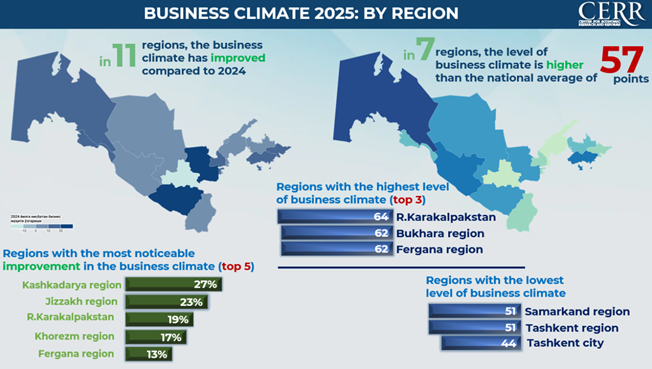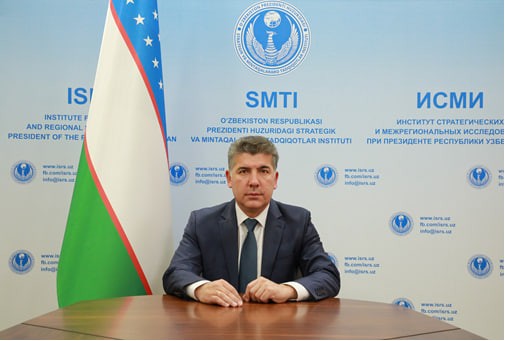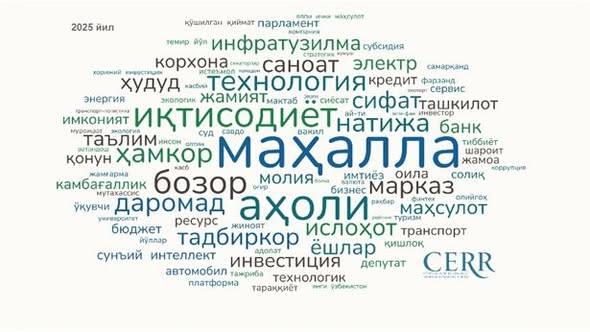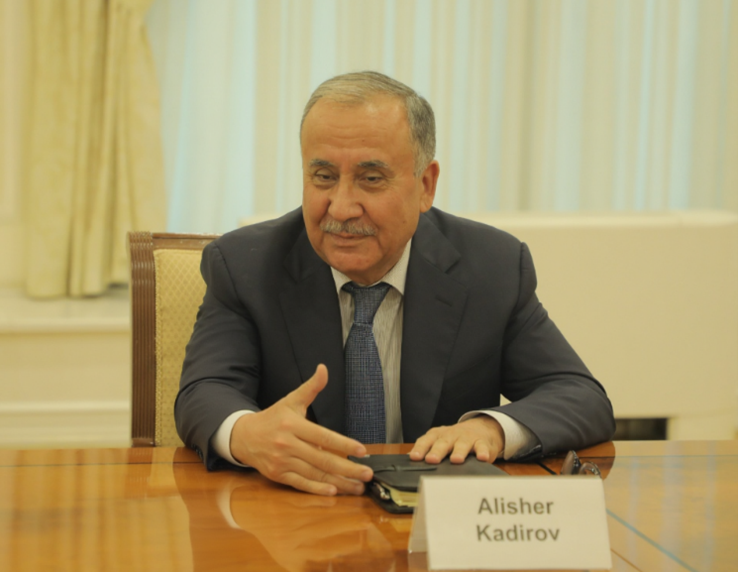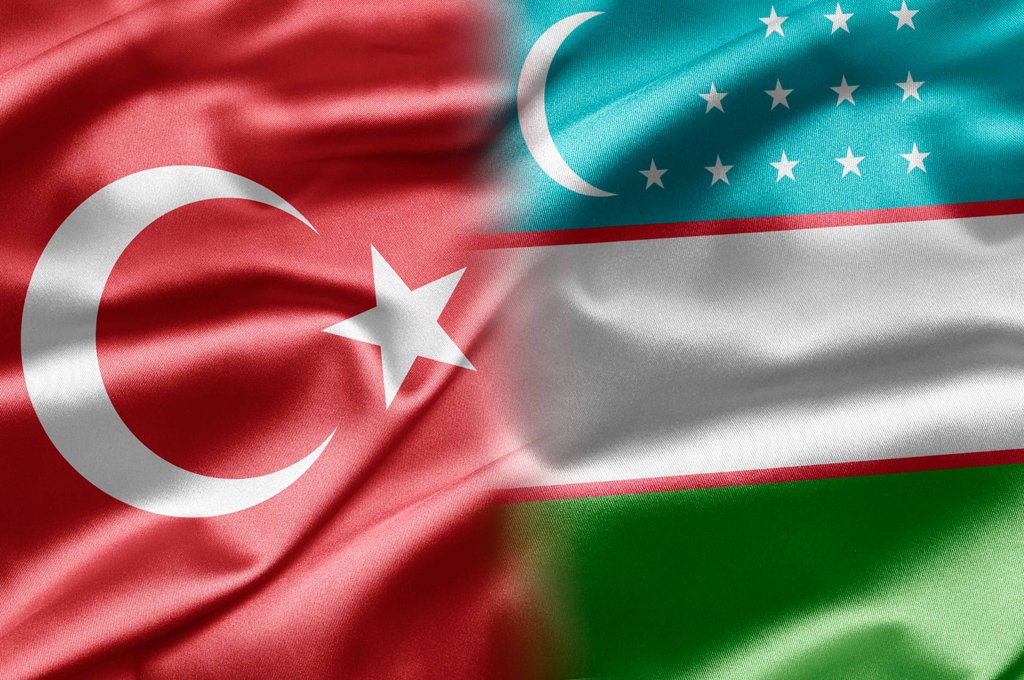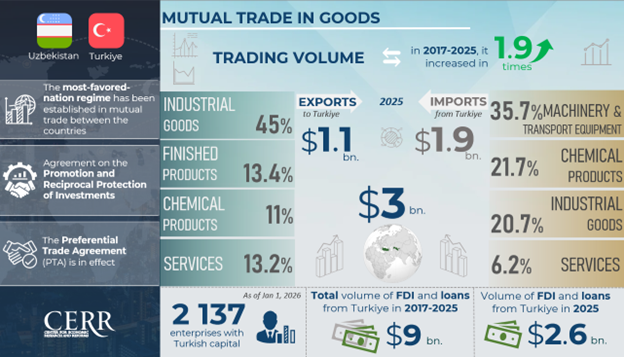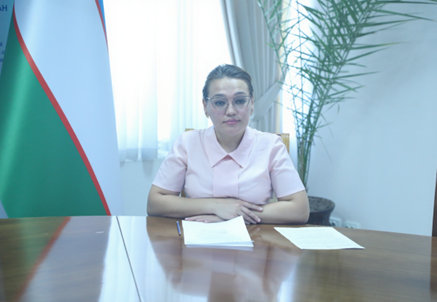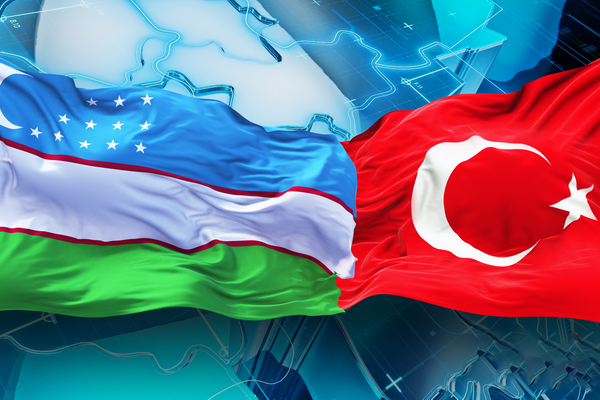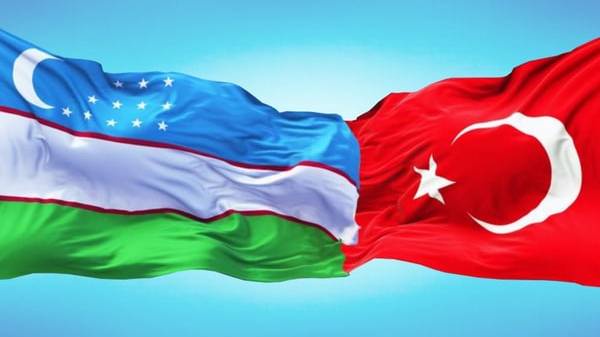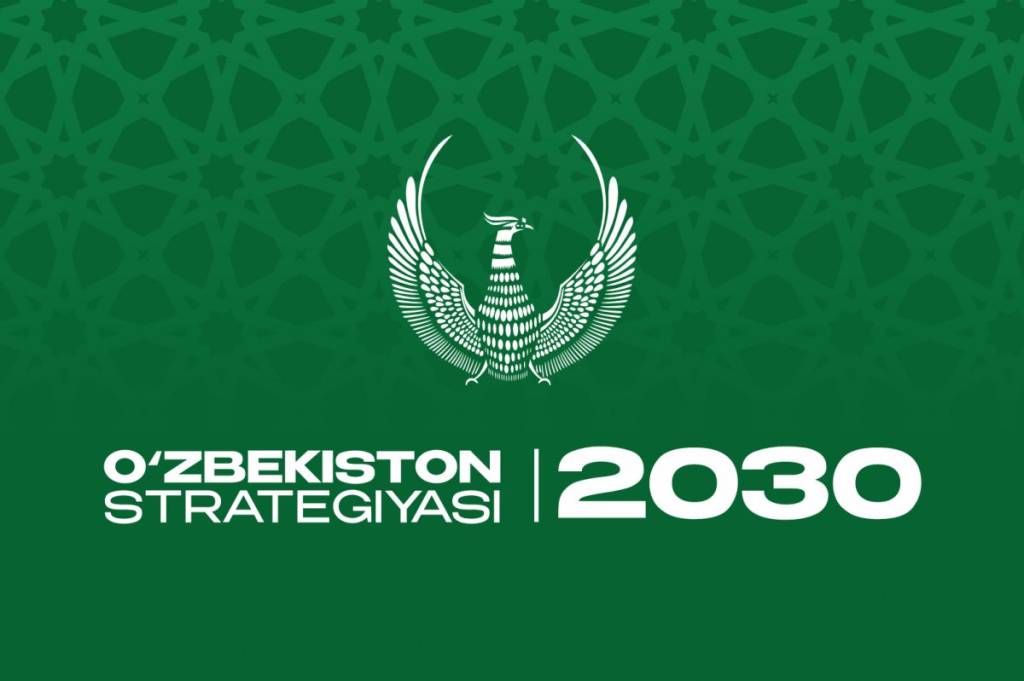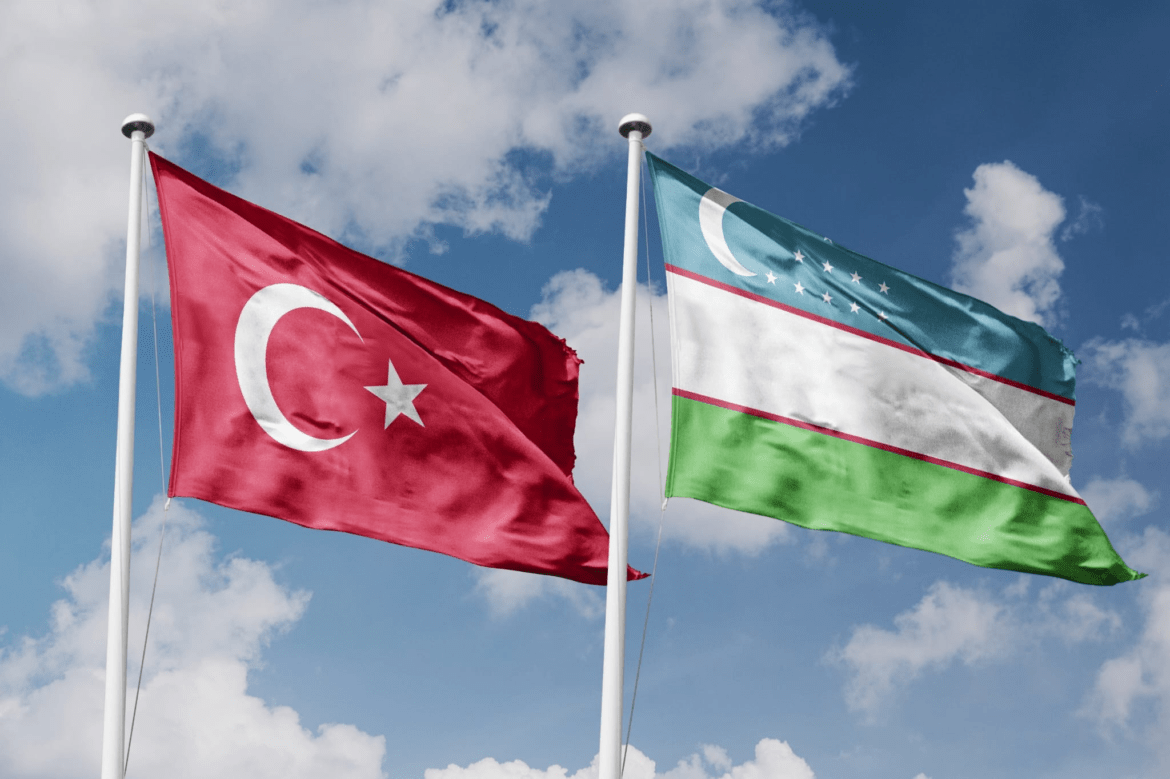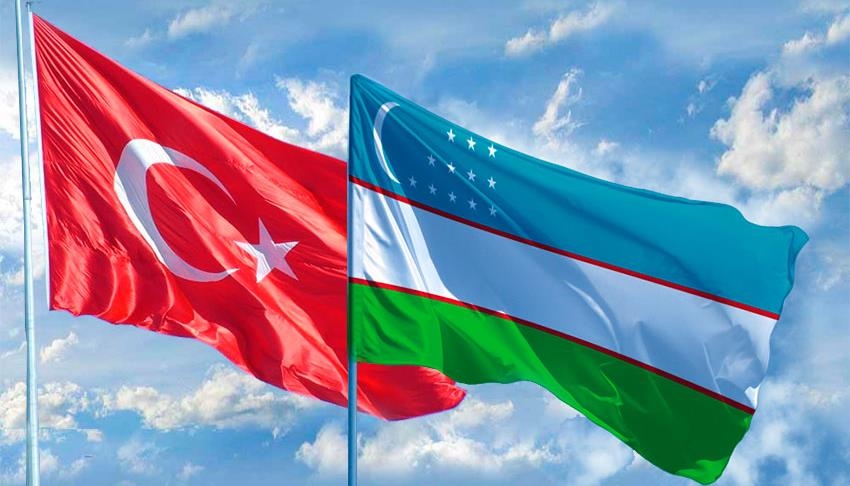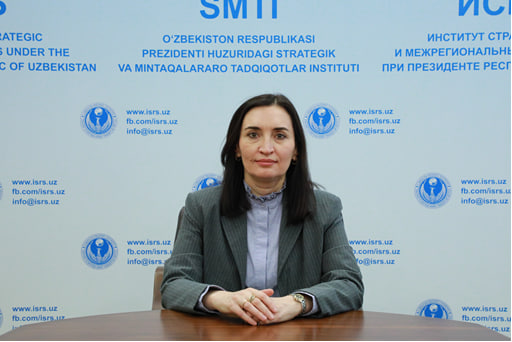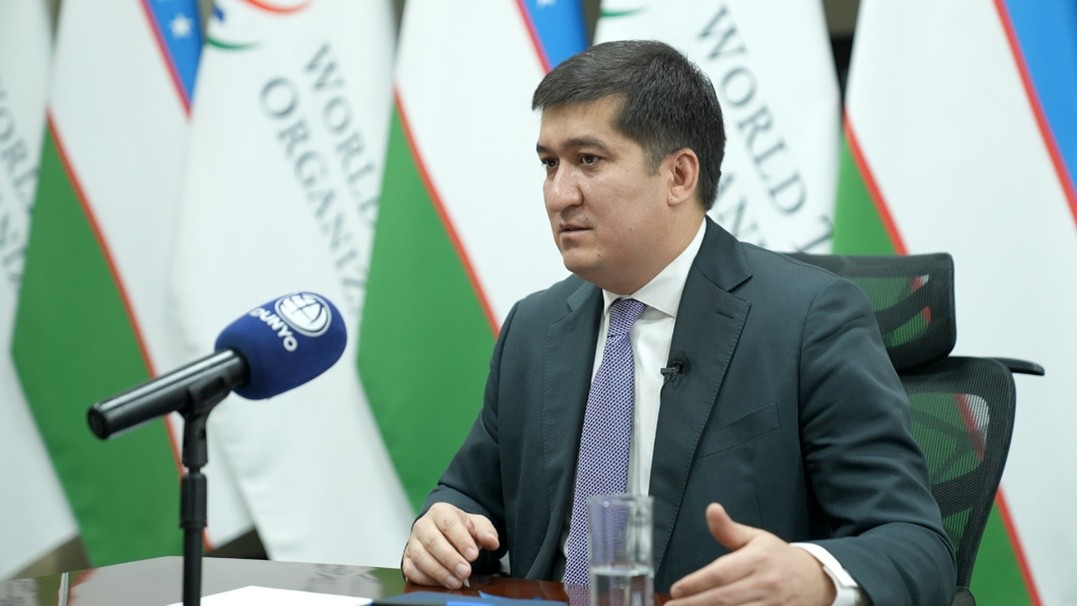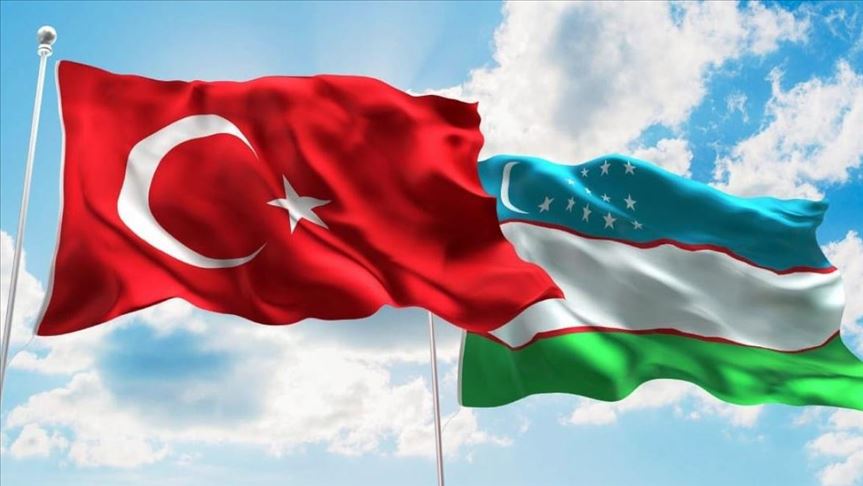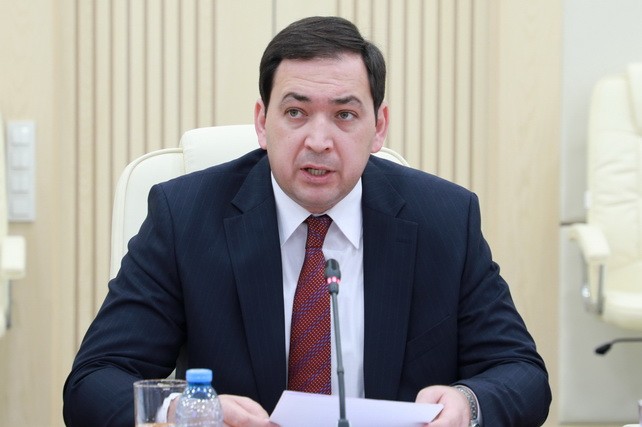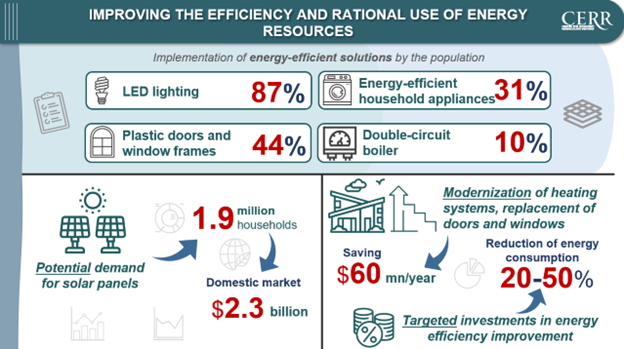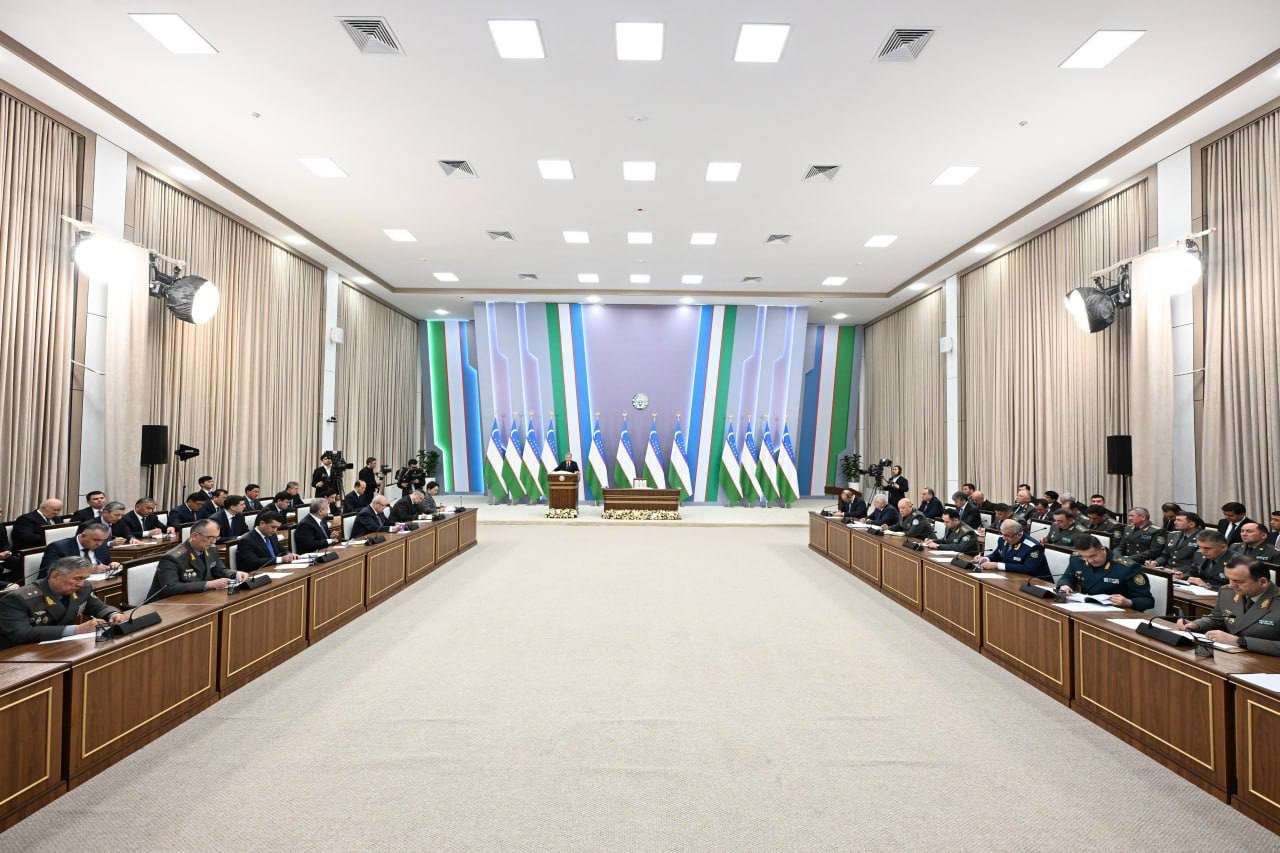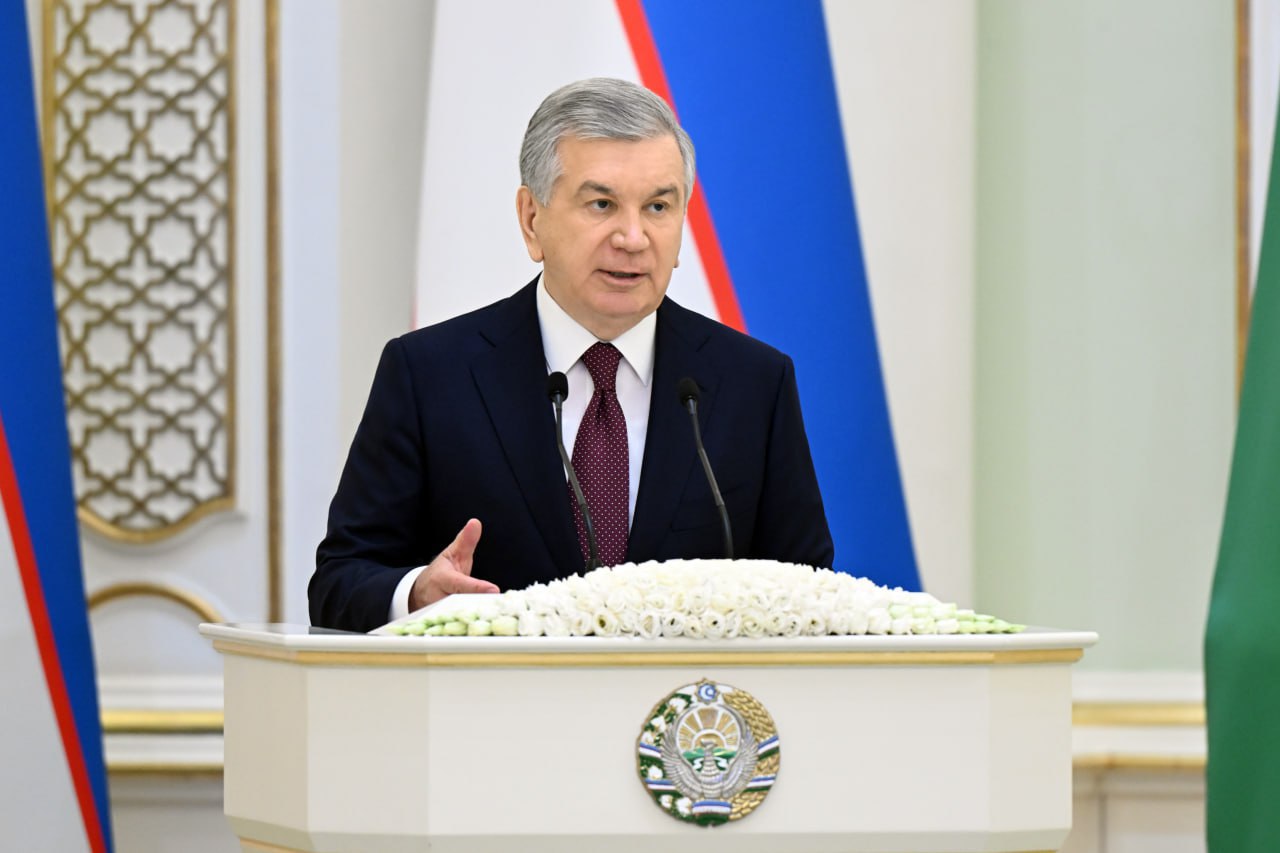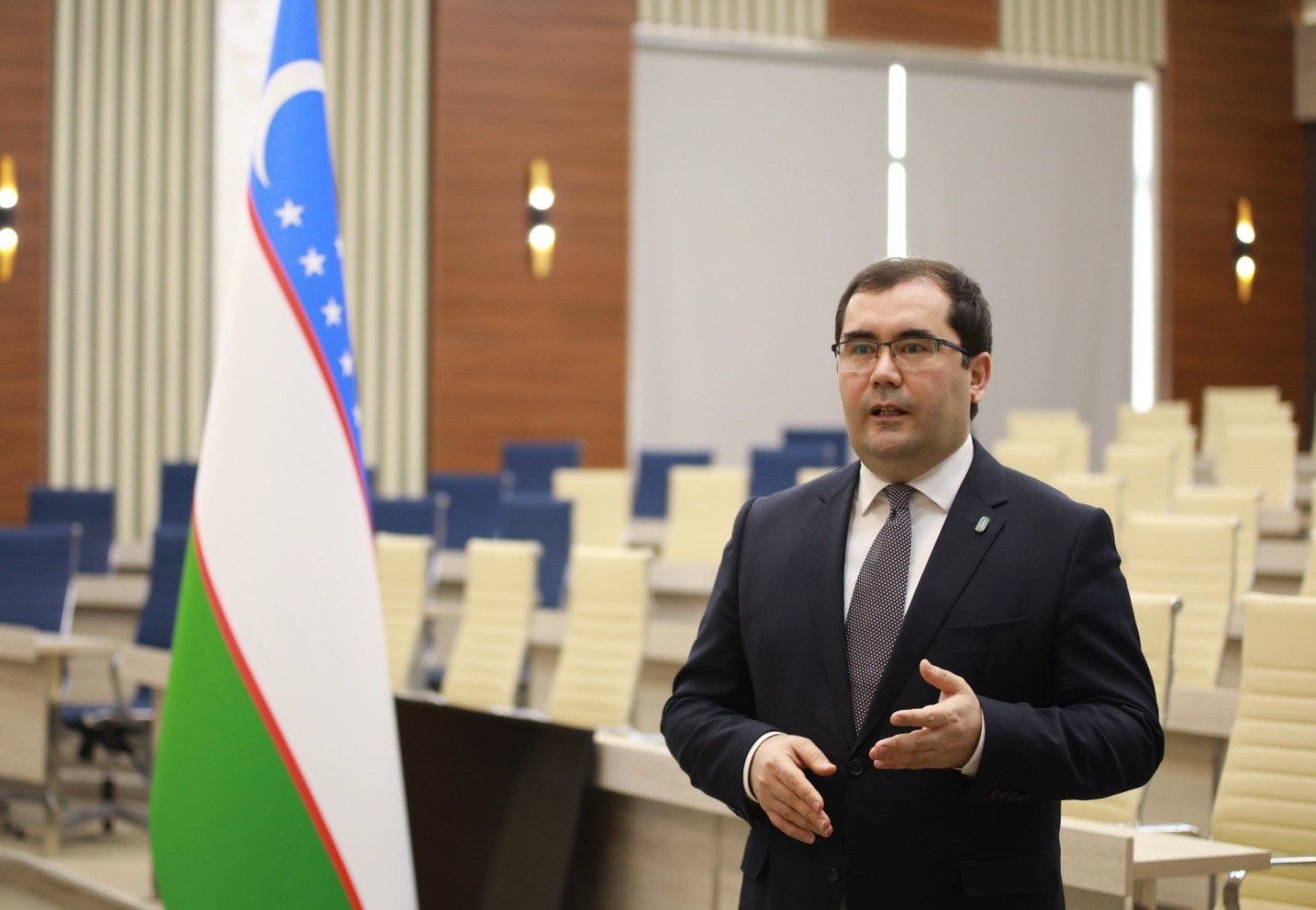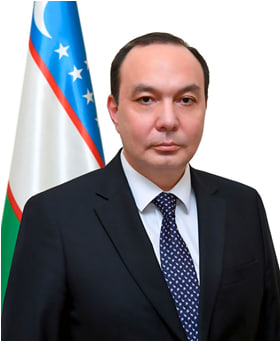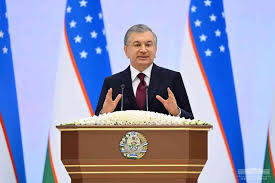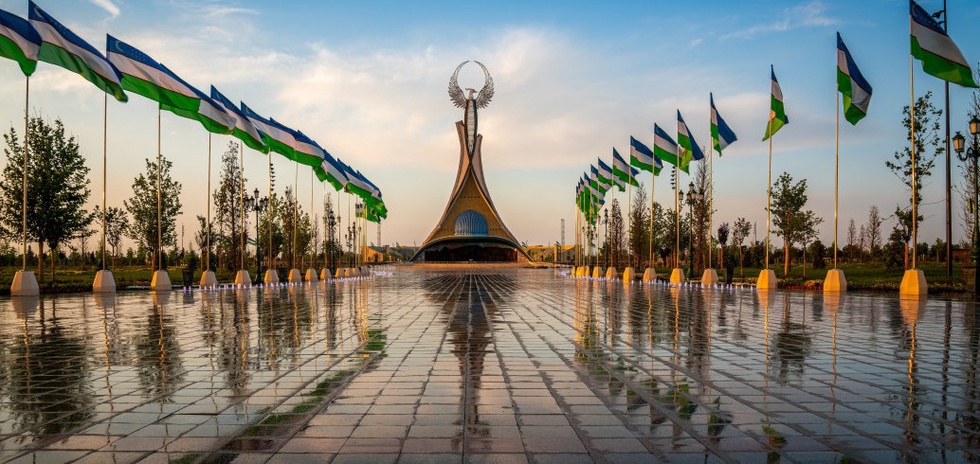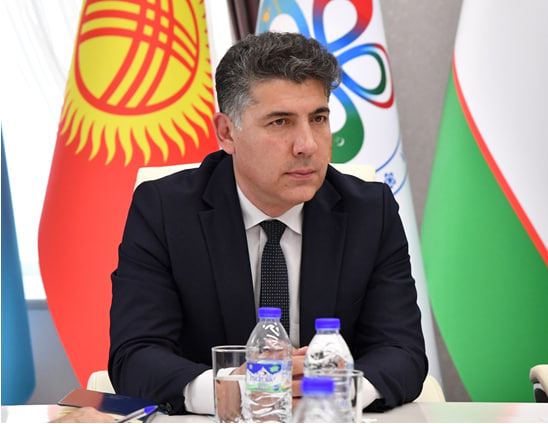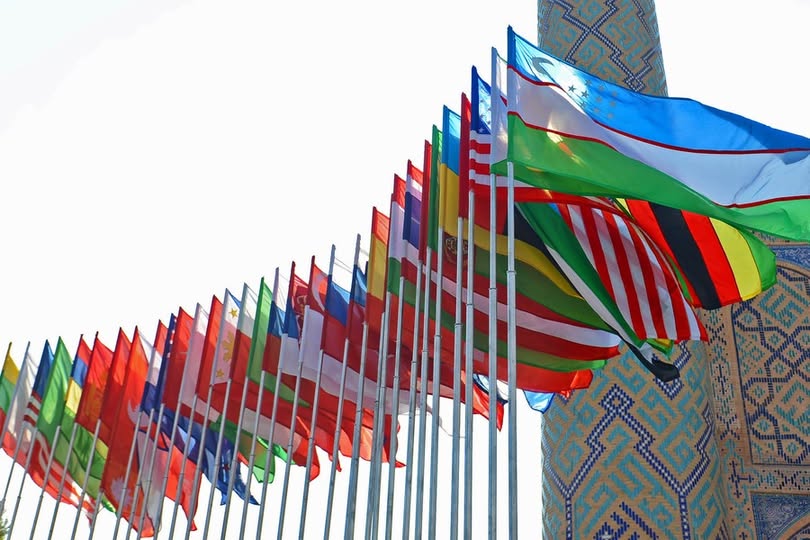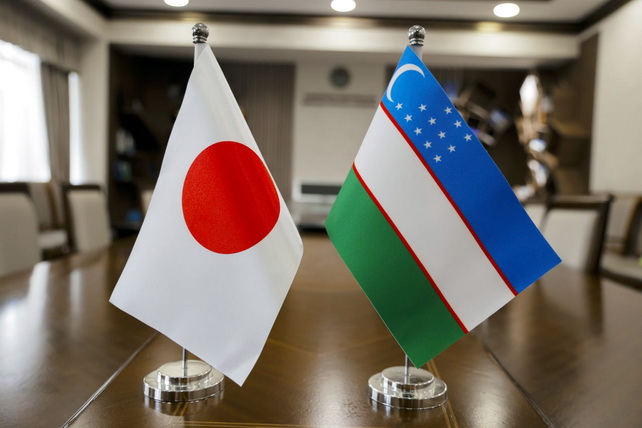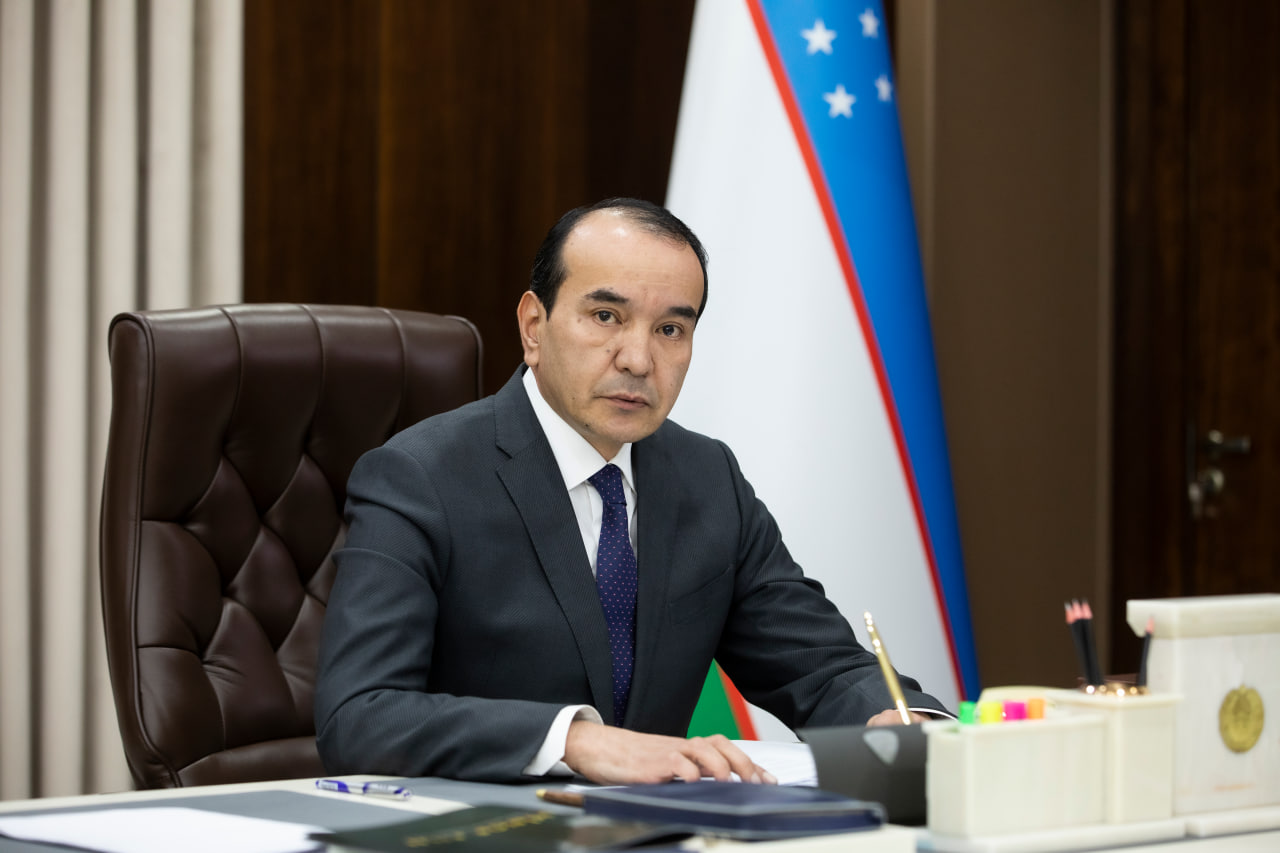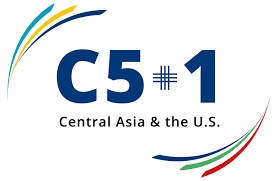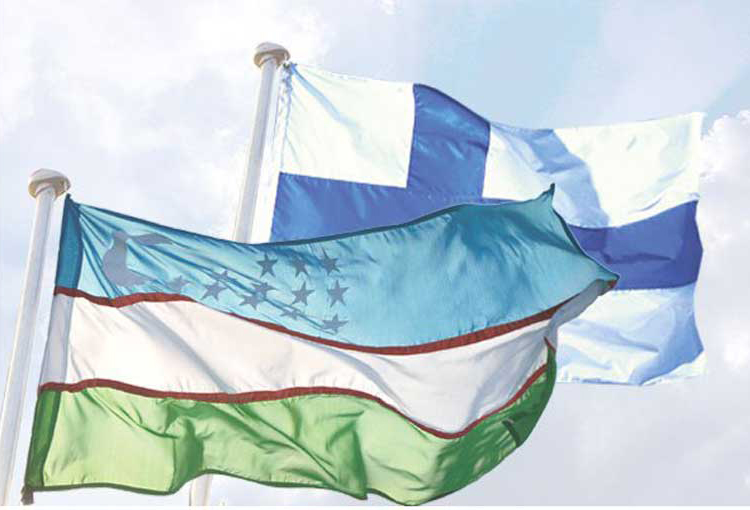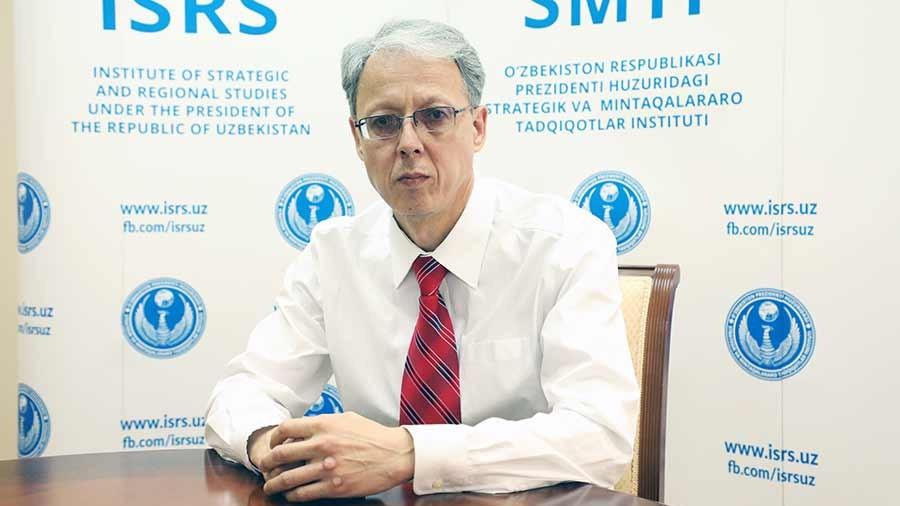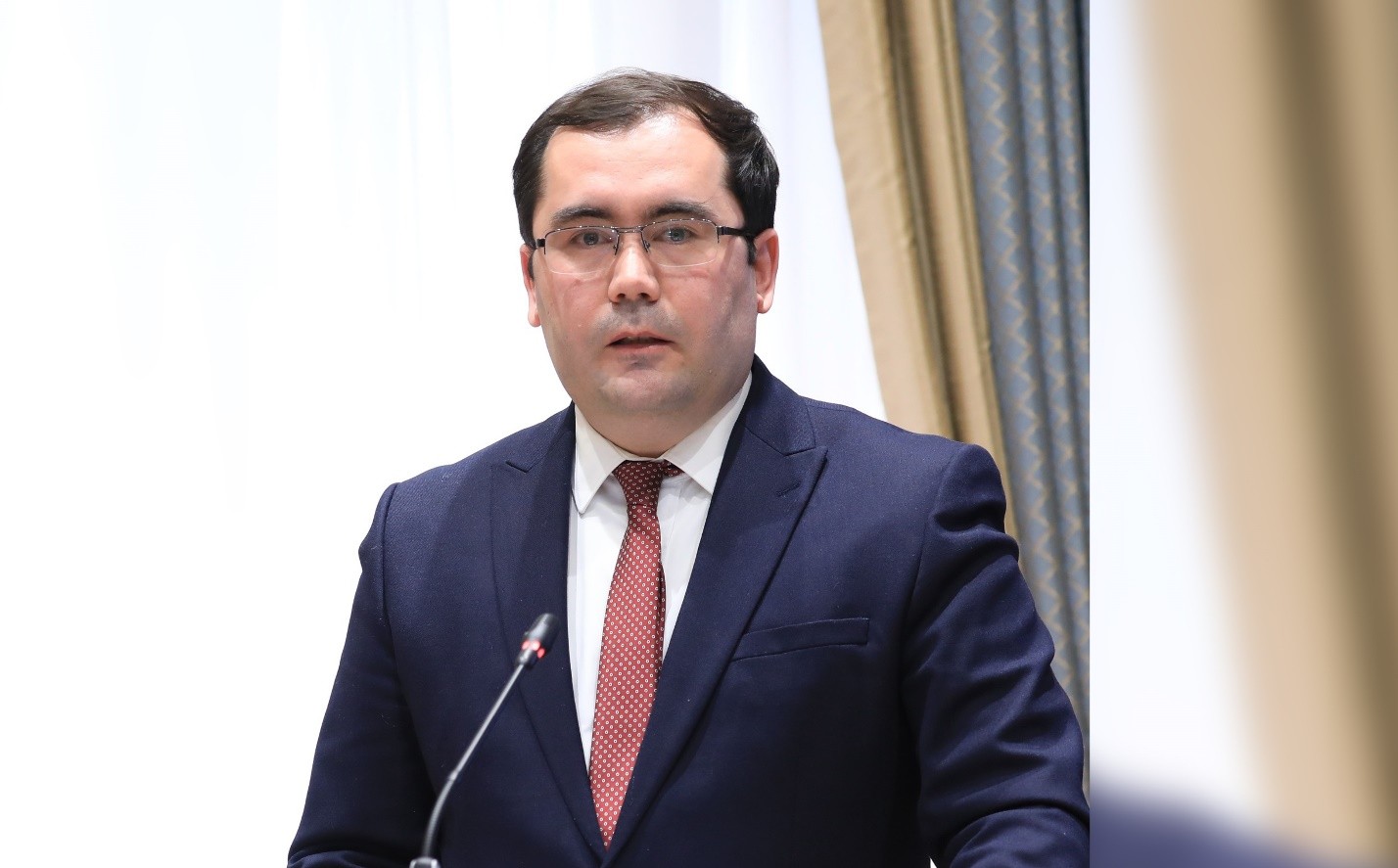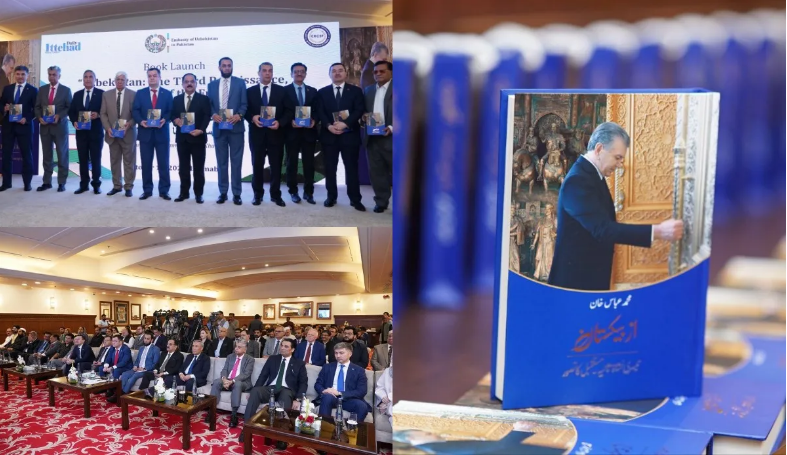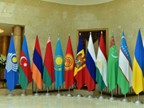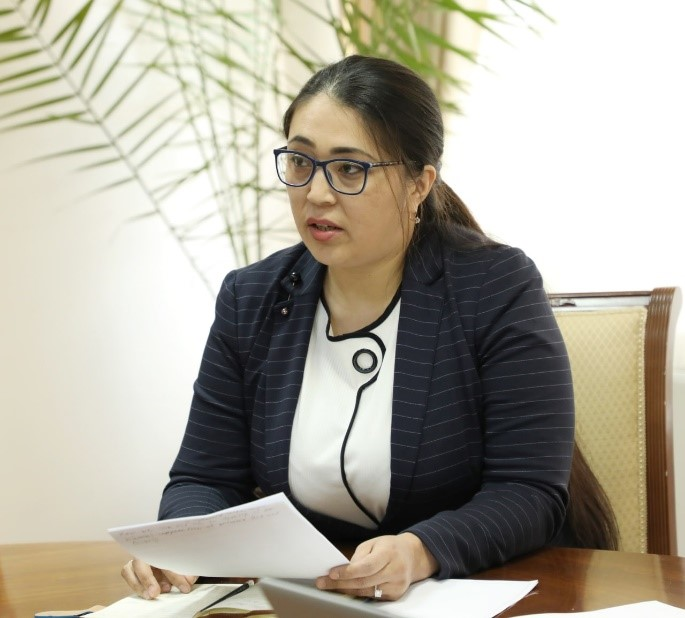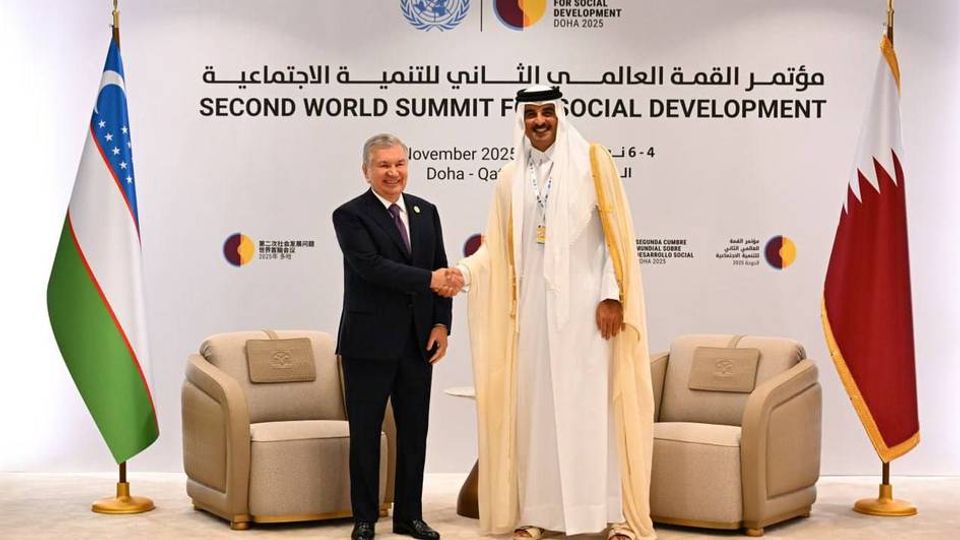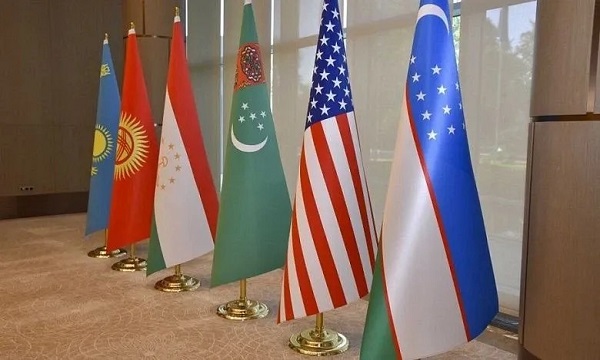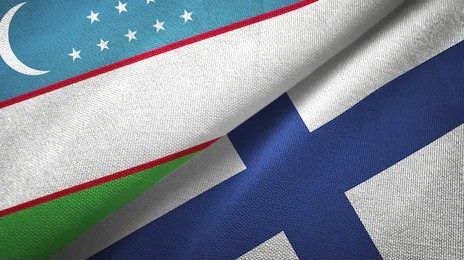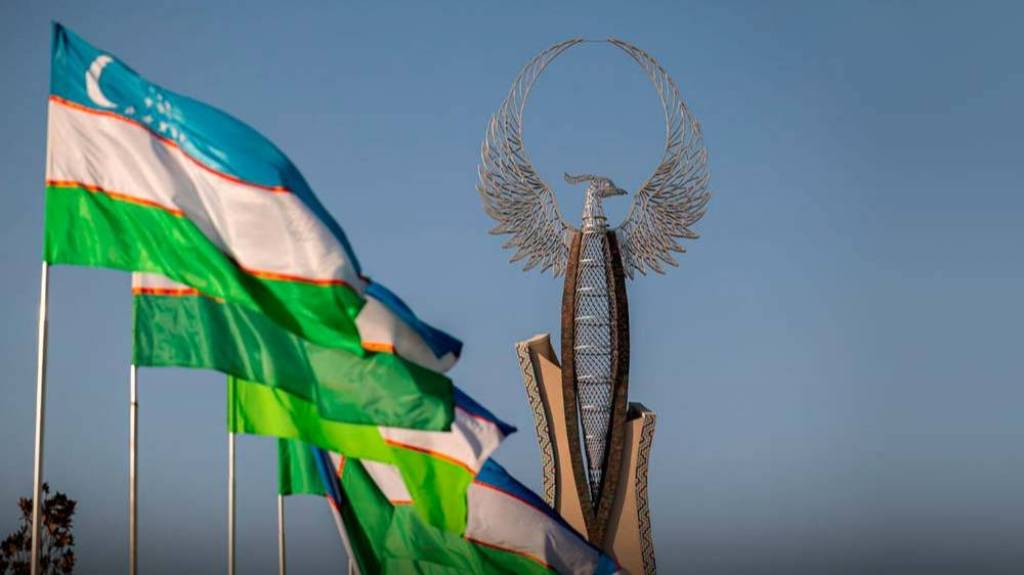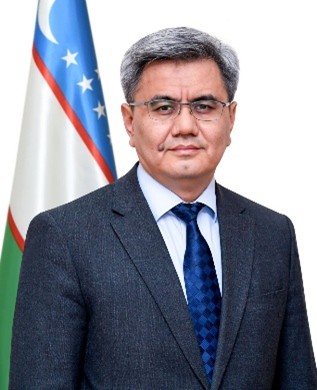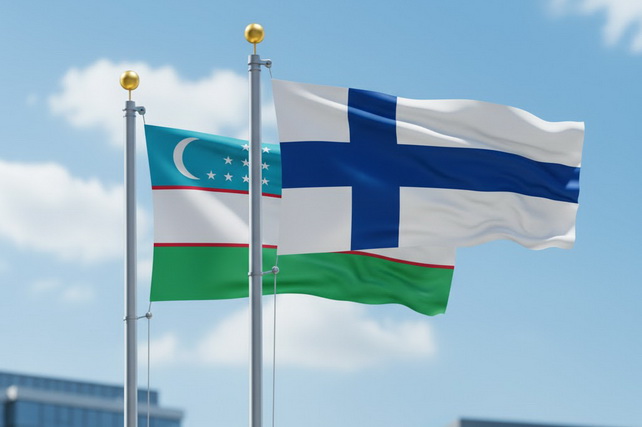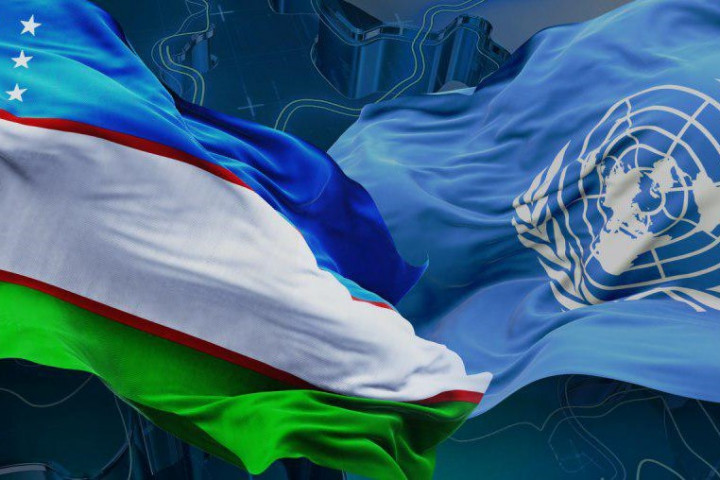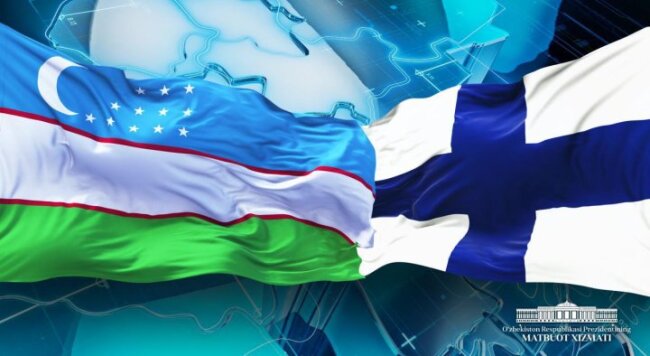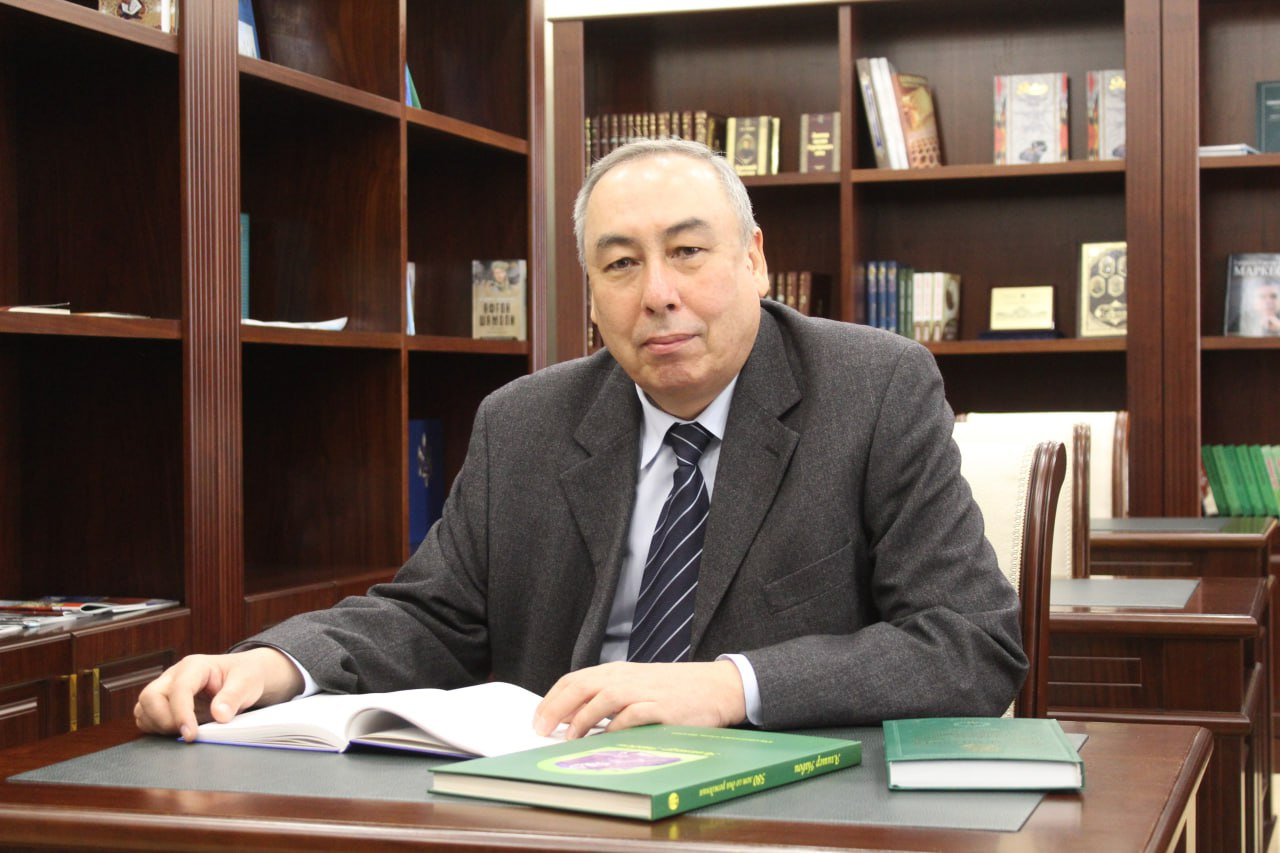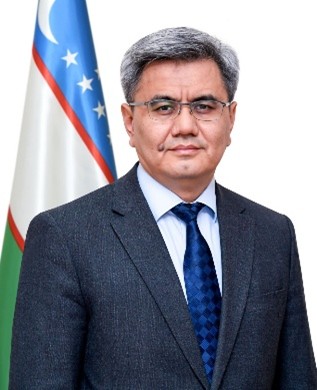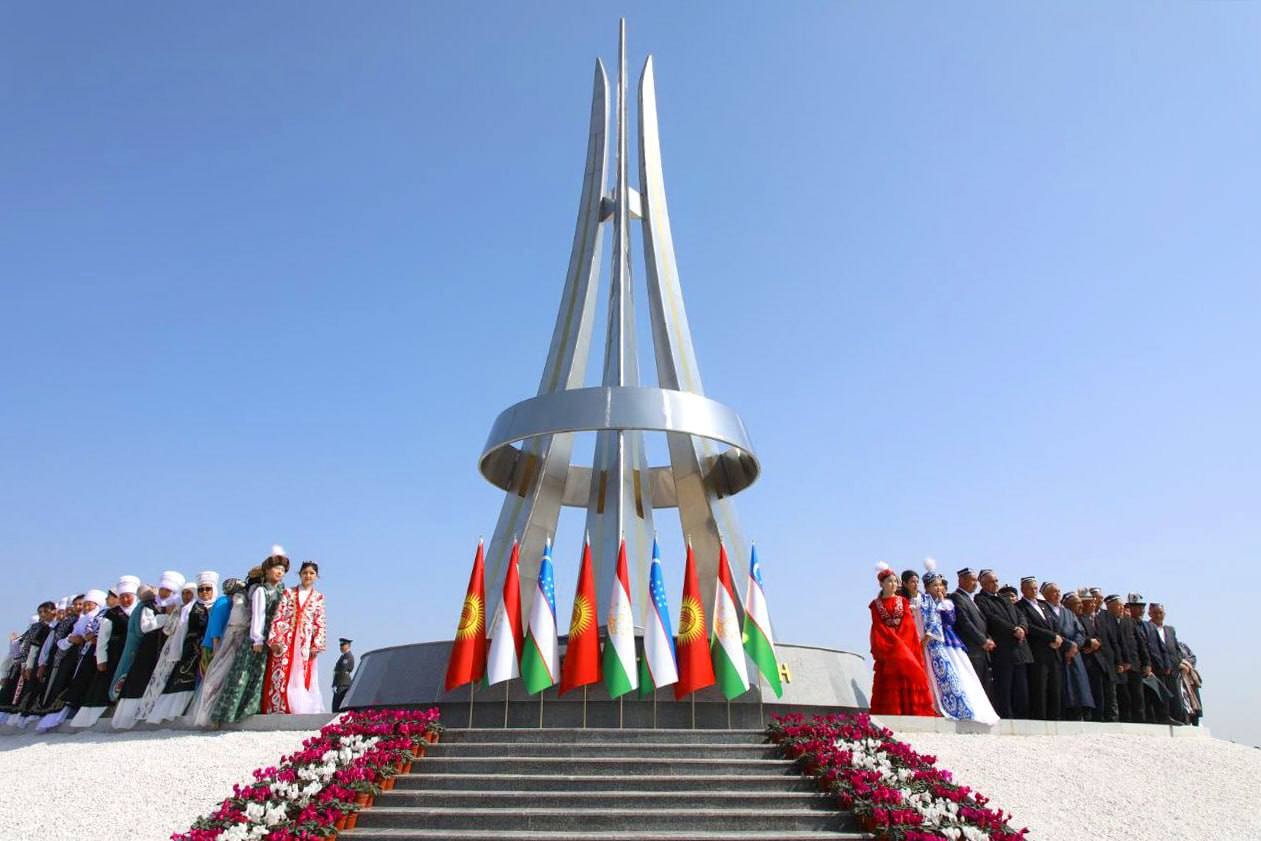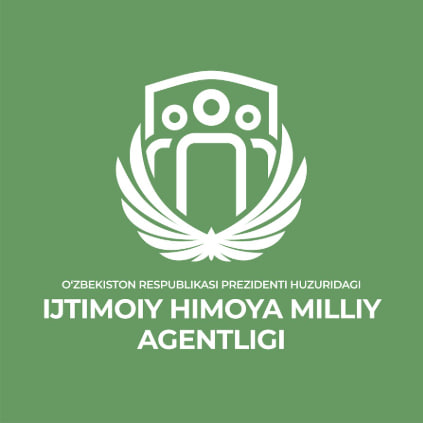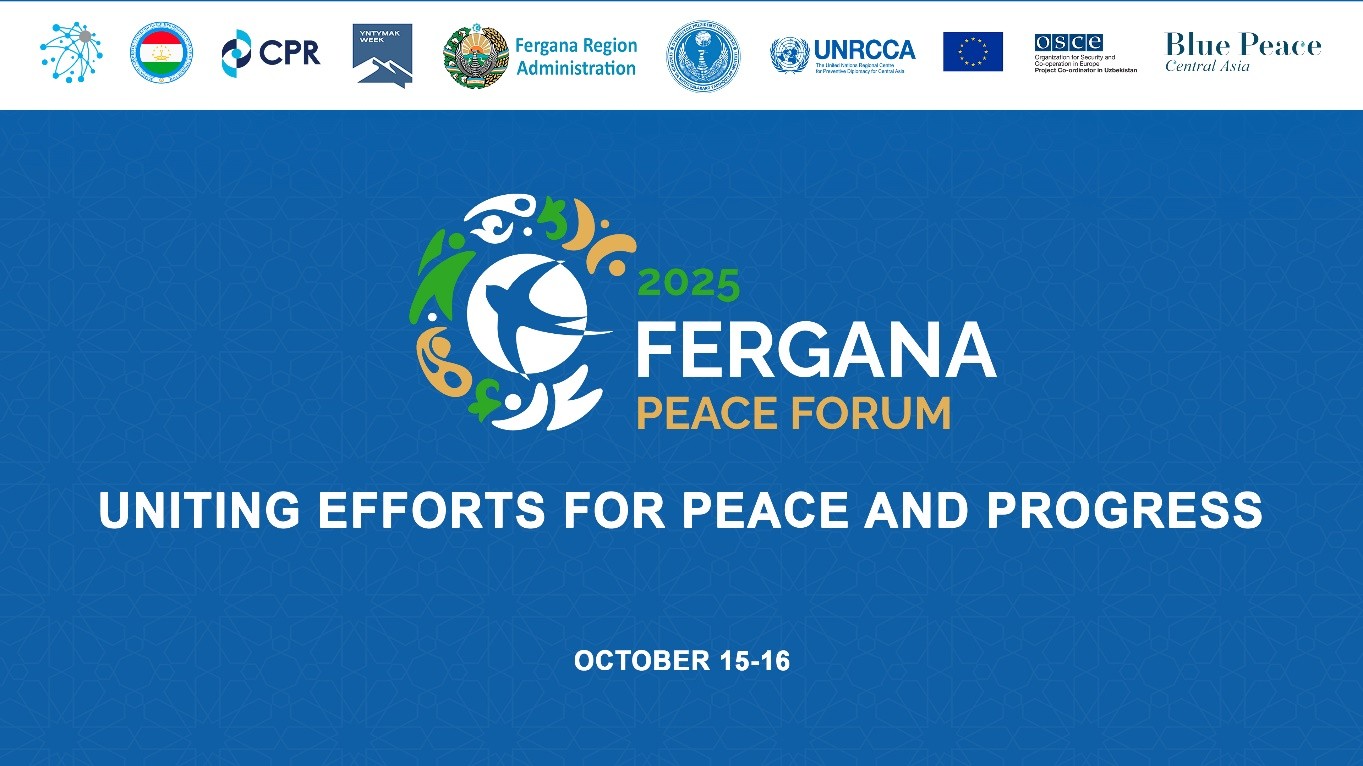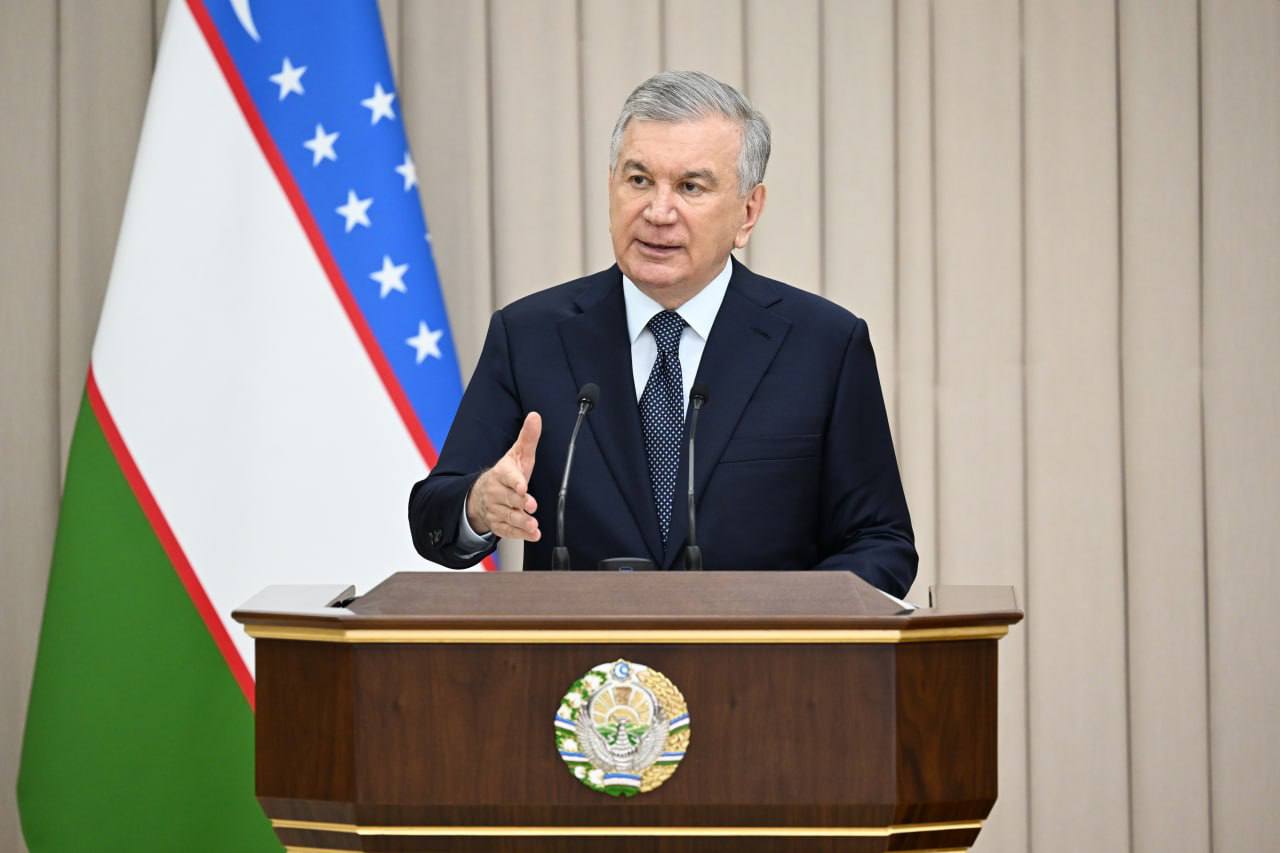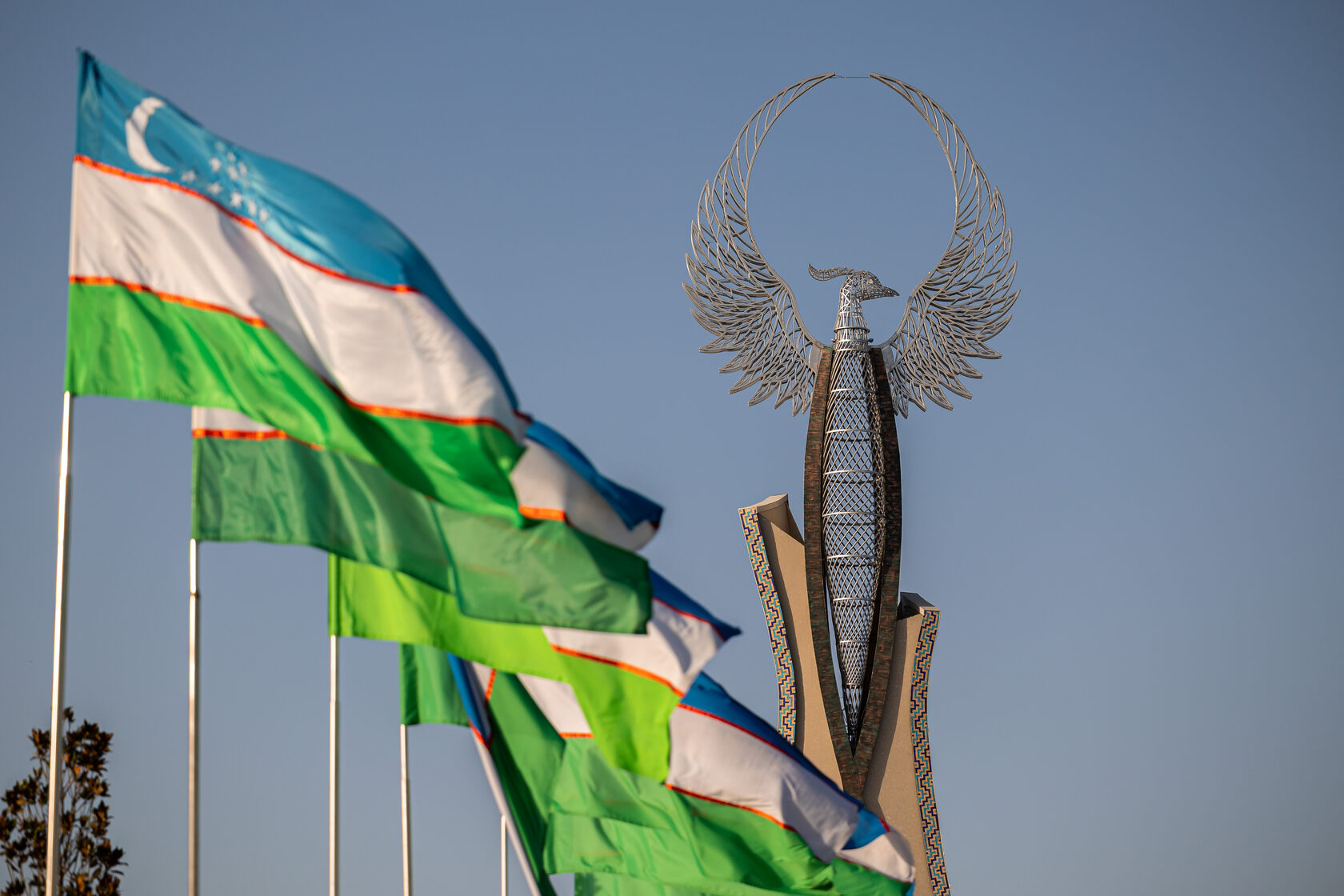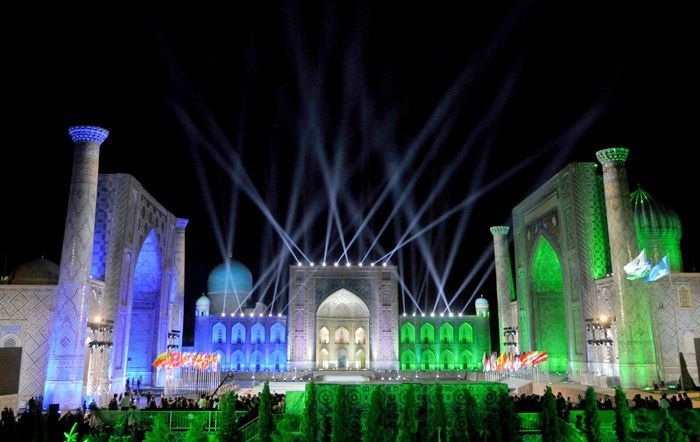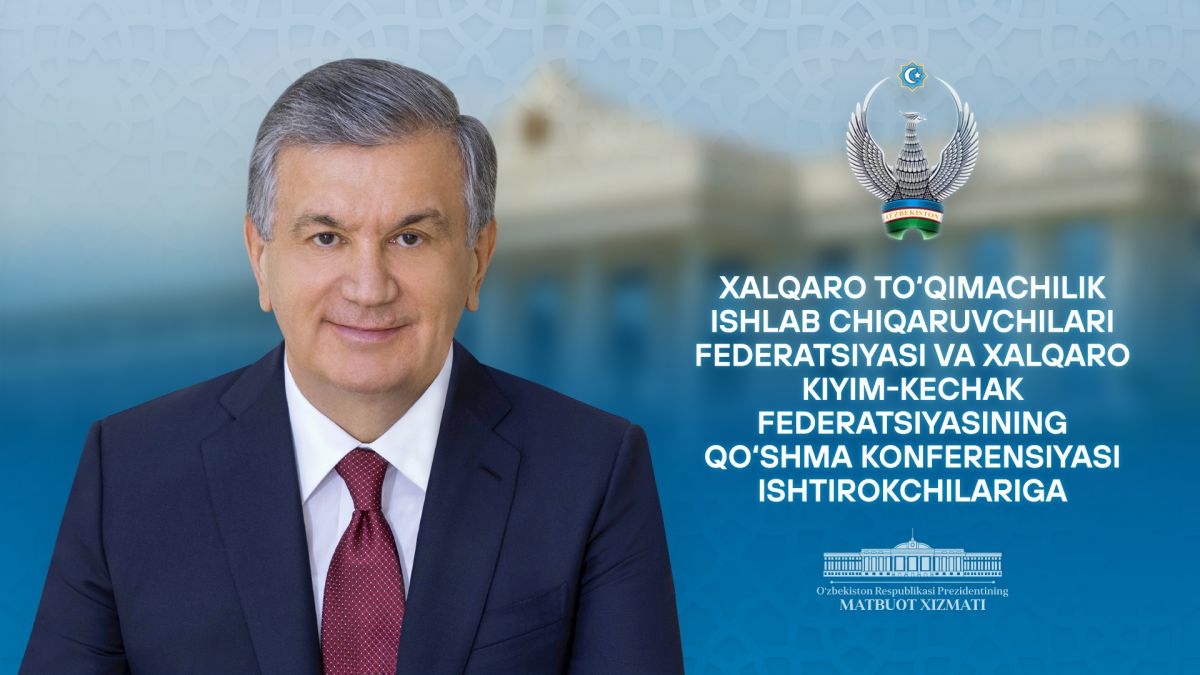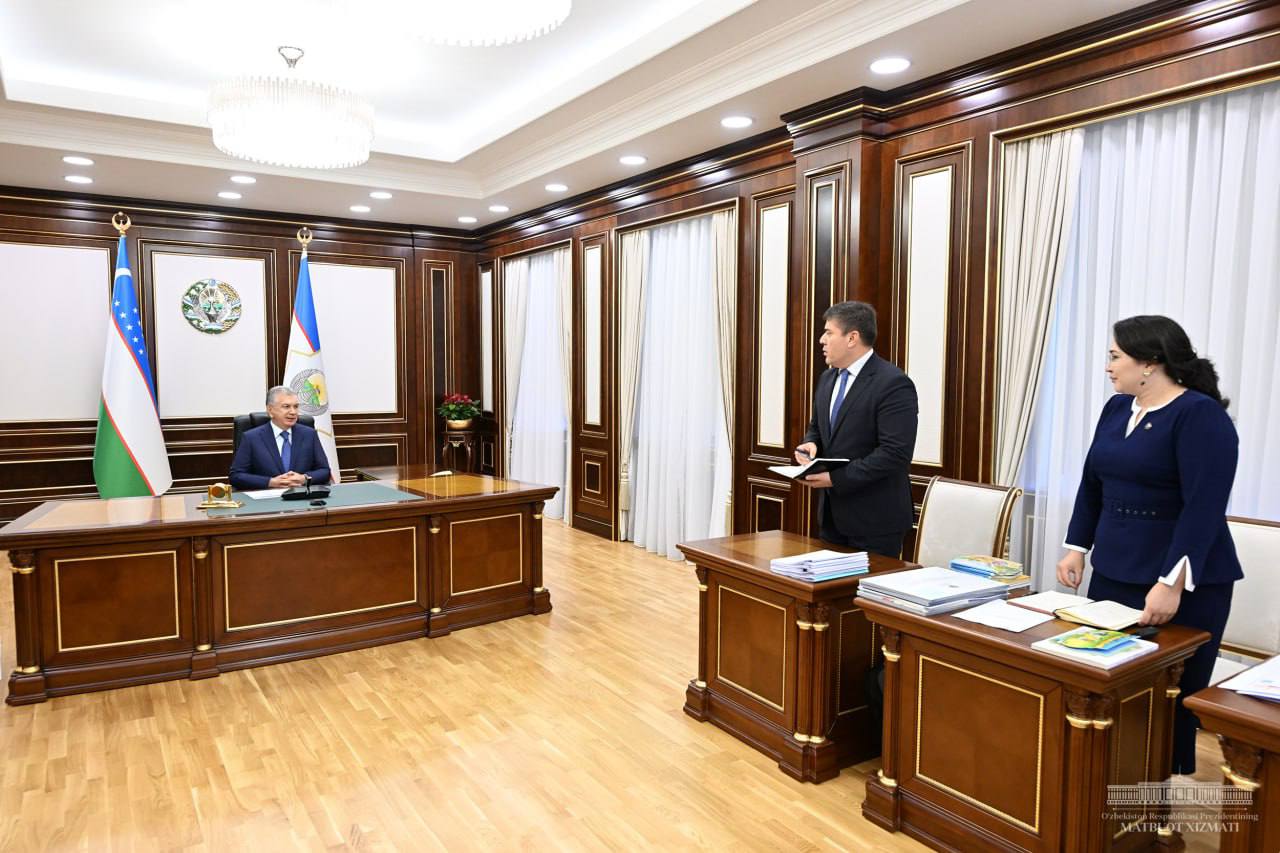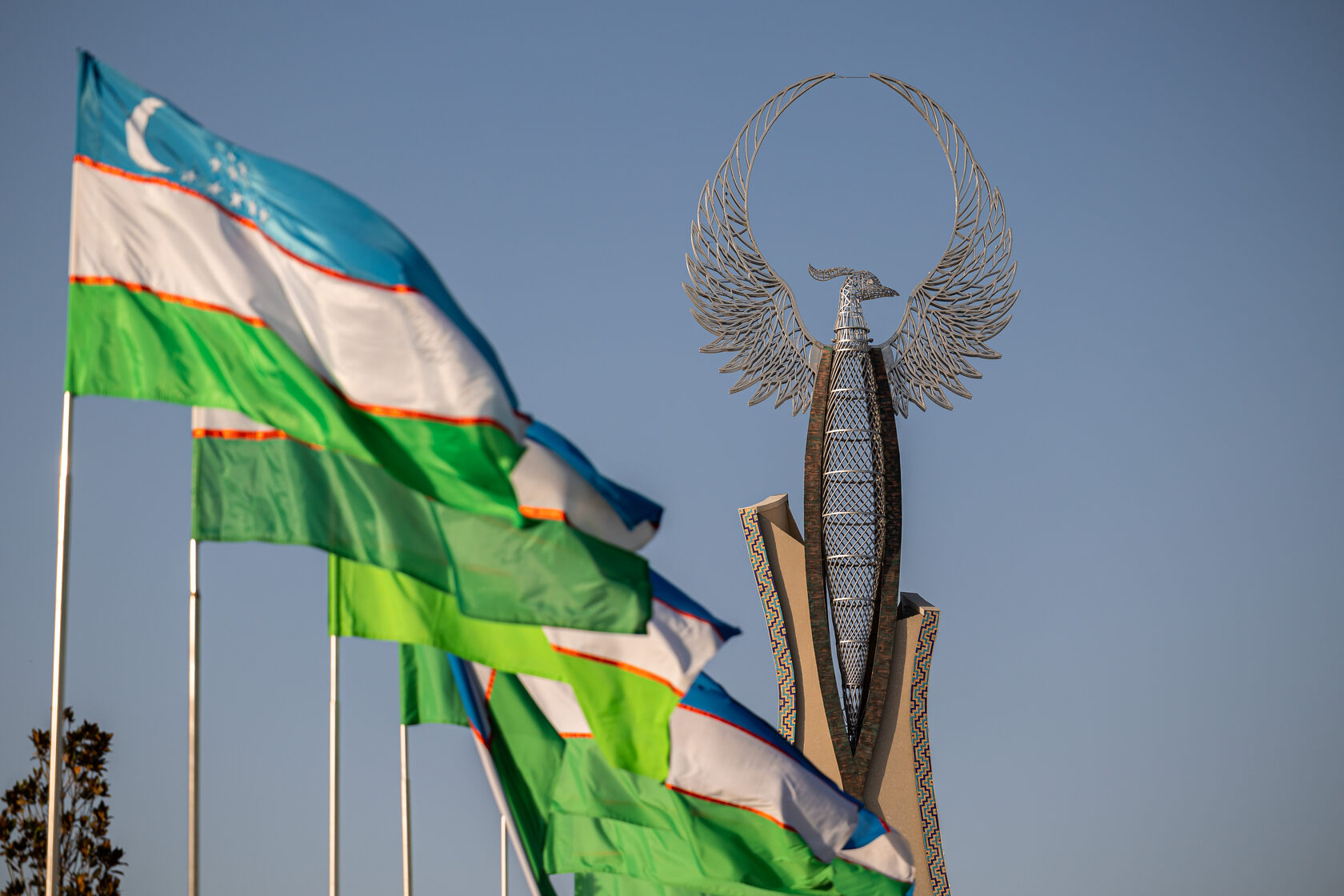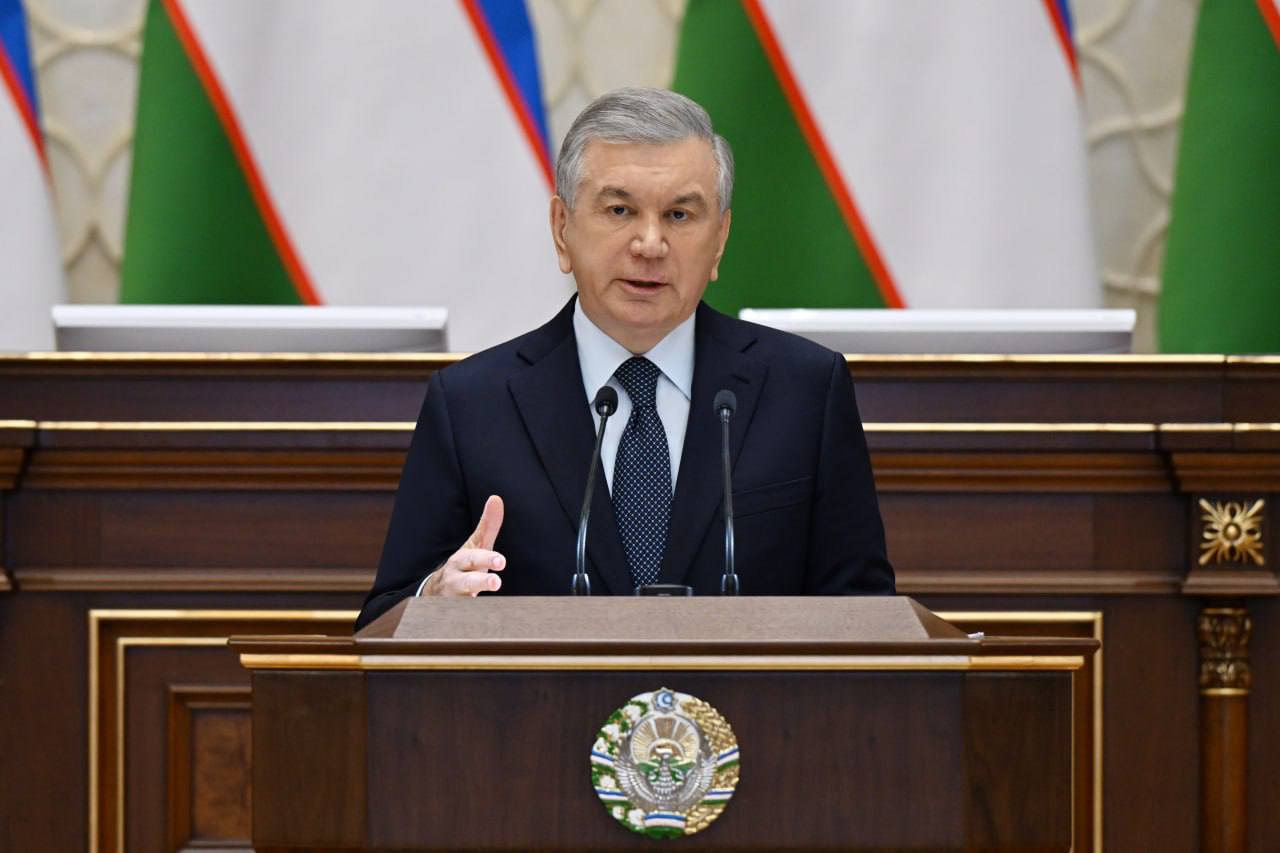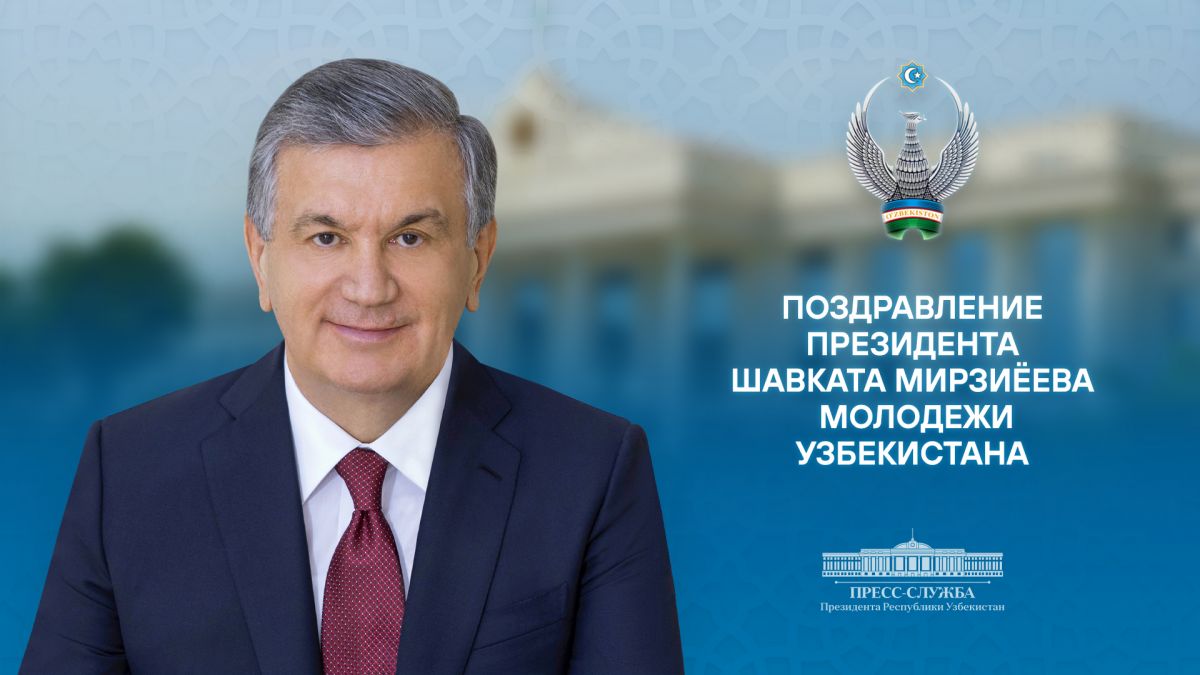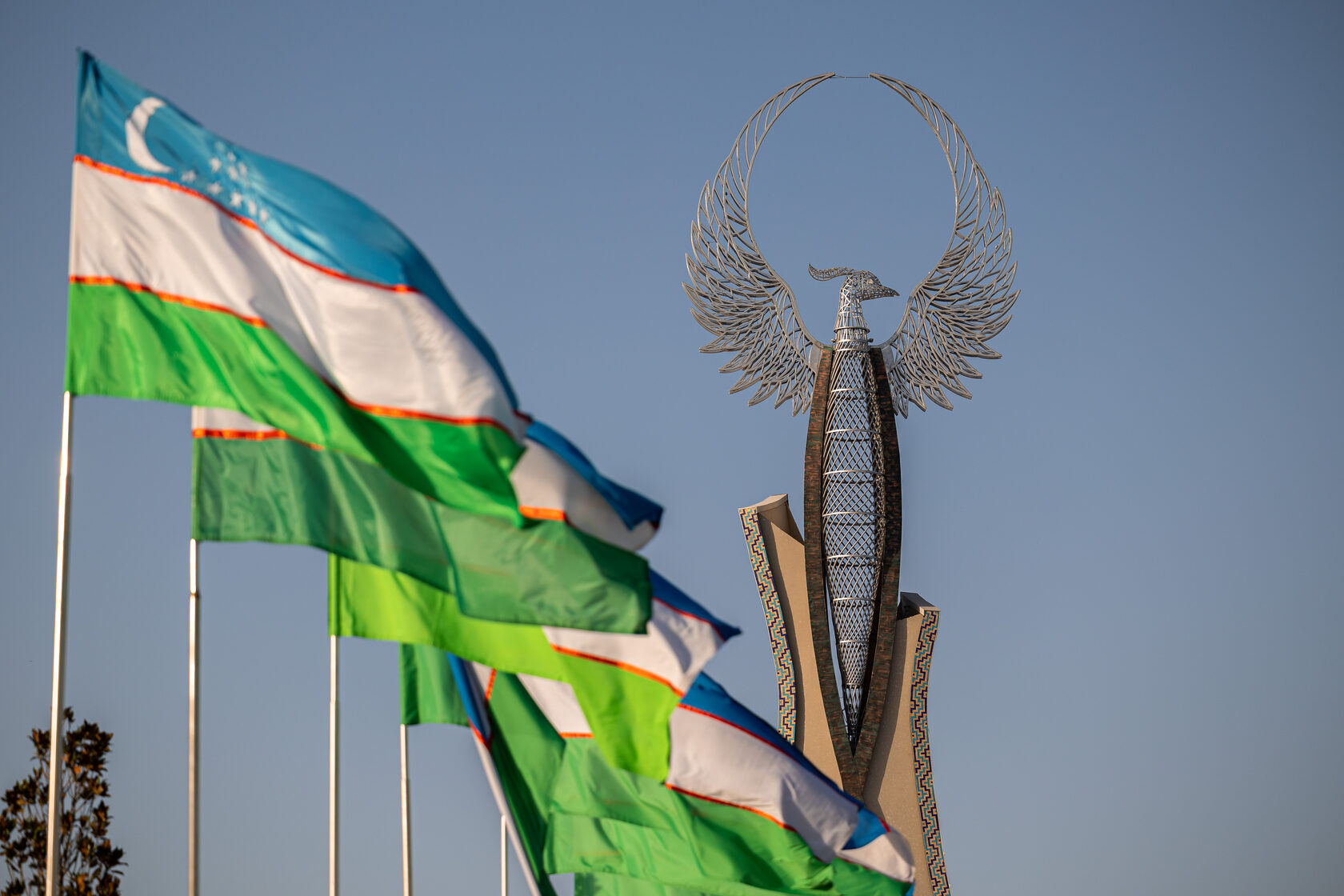Phone
Consular Issues
Phone
Uzbekistan news
We recommend
Matters on strengthening security and defense discussed
📅 24.02.2025
On February 21, under the chairmanship of the President of the Republic of Uzbekistan, Supreme Commander-in-Chief of the Armed Forces Shavkat Mirziyoyev a meeting was held on strengthening military security and defense capacity of the state.
The meeting was attended by members of the Security Council, heads of ministries and departments within the Armed Forces of Uzbekistan, commanders of military districts, as well as the chairmen of the Jokargy Kenges and the Council of Ministers of the Republic of Karakalpakstan, regional and Tashkent city khokims, as well as responsible persons of local authorities in the videoconference format.
At the beginning of the meeting, the adopted measures on strengthening the country's defense capacity and their results were reviewed, certain shortcomings in this work were pointed out.
It was noted that the national army is being equipped with modern weapons and equipment, the level of combat and moral-psychological training of servicemen has significantly increased.
In view of international experience and the analyses carried out, new combat units have been formed to prevent and eliminate internal and external threats, and the organizational structure of the troops has been optimized.
It was underlined that the creation of a new system of modernization and modern equipment of the army continues - the defense industry is developing and additional enterprises have been set up. The Armed Forces of Uzbekistan have established bilateral military cooperation with more than 20 countries and successfully participated in more than 400 joint exercises.
The infrastructure of higher military schools within the Armed Forces has been completely modernized, their curricula and methodology brought in line with modern requirements.
The social and legal protection of servicemen and their families has been strengthened. In particular, about 30,000 families have been provided with housing, and more than 2,000 children of servicemen have received benefits when enrolling in higher educational institutions.
Military administrative sectors, government and public organizations are involved in creating favourable conditions for homeland defenders. Attention to the issues of educating young people in the spirit of patriotism and initial pre-conscription military training in schools is being intensified.
The meeting identified priority tasks for 2025 and subsequent years.
The need to consider contemporary armed conflicts, existing threats to national security and the peculiarities of the theater of military operations when planning for the further development of the army was emphasized.
It has been indicated that artificial intelligence, robotic systems, missiles, drones and means of countering them are widely used in today's regional conflicts. In this connection, it has been instructed to create new units in the armed forces to combat drones, use robotic equipment, air defense, and cyber structures utilizing artificial intelligence technologies.
The Supreme Commander-in-Chief emphasized the need to further improve the combat readiness of the army, raise the level of combat training, create a unified automated troop management system using artificial intelligence technologies, as well as introduce dual training in military education and training of military personnel.
Priority tasks have been set to improve the activities of the “Corps of Master Sergeants”, which is the backbone of the army, further develop the defense industry, provide social support to servicemen and their families, educate young people in the spirit of patriotism and involve them in military sports.
Reports and proposals by the Minister of Defense, commanders of military districts and other responsible persons were heard at the meeting.
How new mechanisms for regulating labor migration work in Uzbekistan
📅 26.07.2024
Labor force migration is a natural process worldwide. In Uzbekistan, purposeful work is being carried out to safely and orderly send such citizens abroad. The Agency for External Labor Migration has sent 70,000 people to developed countries for this purpose in the past two years.
We all know that those who want to work abroad also incur certain expenses. Therefore, migrants partially reimburse the costs of a work visa, travel ticket, foreign language, and qualification assessment. It is established that a citizen who has obtained international or equivalent certification in a foreign language is reimbursed 50% of the language learning costs.
Among all the positive work carried out in this area, there is a noted development of significant cooperation with the International Organization for Migration in protecting migrant rights, as well as with developed countries. Systematic work is underway to develop the Concept of the State Policy of the Republic of Uzbekistan in the field of migration until 2030, envisaging the achievement of criteria for guaranteed equality in the social protection of labor migrants.
Emphasizing that the Ministry of Employment and Labor Relations has established contracts between the External Labor Migration Agency and 25 German companies, Uzbek citizens are being temporarily employed in various fields. Discussions are also underway with another five companies. In the past three years alone, 821 Uzbek citizens have been sent to Germany for temporary work, while 1,670 citizens are currently undergoing training to continue their work activities in this country.
In this way, cooperation in the field of labor migration between Uzbekistan and Germany is actively developing, ensuring the preparation of our citizens for work, providing professional training and language learning opportunities, and creating favorable conditions for employment.
The External Labor Migration Agency has been holding discussions on labor migration issues with several countries in 2024, such as Great Britain, Hungary, and Slovakia, highlighting the increasing importance of these efforts.
In addition to the above, under the initiative of President Shavkat Mirziyoyev, each returning labor migrant is provided with a subsidy of 500,000 soums per month from the Labor Support Fund for one year. It is estimated that approximately 100 billion soums will be allocated to these measures for a year.
Assisting returning migrants in finding employment is also being considered as an important issue, and based on the Saykhunabad experience, financial support is provided for the production of goods and income generation, as well as other types of labor services. Medical facilities may also provide free medical checks for returning migrants and their family members. Additionally, starting from October 15, 2023, "Inson" Social Service Centers have been established in the Republic of Uzbekistan to provide social assistance to children whose parents work abroad, which is a significant step.
It is important to note that today, not only state organizations but also non-governmental organizations play a significant role in regulating and supporting labor migration. In this regard, it is relevant to mention educational courses and service organizations providing assistance in collaboration with the External Labor Migration Agency.
In short, a safe, orderly, and legal system for labor migration has been established in Uzbekistan, creating new mechanisms for citizens wishing to go abroad. It encompasses three main stages: The first stage involves organizing preparatory work for citizens intending to work abroad. Vocational and language training is conducted in 14 "Job Placement" service centers nationwide, 30 vocational training centers, 136 communities, 24 colleges, and 13 technical colleges.
Second stage: Providing legal and social assistance to labor migrants abroad. For this purpose, agencies dealing with labor migration issues have been established in several countries to provide services to Uzbek citizens working abroad. Labor Migration Affairs Attachés have been appointed at Uzbekistan's Embassies.
Third stage: Assisting in the reintegration of labor migrants returning to Uzbekistan. Inspectors at the Labor Support Centers are engaged in activities aimed at the reintegration of labor migrants returning to the country.
In conclusion, it is essential to emphasize that appropriate measures are being taken to ensure suitable working conditions and social protection for Uzbek citizens engaged in labor activities abroad. Collaboration with our foreign partners continues on all relevant migration issues. Systematic efforts are being made to further develop initiatives related to the professional orientation and language proficiency of labor migrants.
Bobomurod Yarashev,
teacherof the University of
Public Safety of the Republic of Uzbekistan
Partnership for Future Generations
📅 22.12.2025
Despite the 6,000-kilometer distance between Tashkent and Tokyo, the official visit of President of Uzbekistan Shavkat Mirziyoyev to Japan on December 18-20 elevated Uzbek-Japanese relations to a qualitatively new level of expanded strategic partnership for future generations.
Uzbekistan’s relations with Japan have deep historical roots. For centuries, Samarkand served as one of the key centers of the Great Silk Road, while Nara, the ancient capital of Japan, was its eastern gateway. Trade and the exchange of knowledge along the Great Silk Road, including between Uzbekistan and Japan, played a significant role in the development of international commerce and cultural interaction, forming lasting cultural bridges between civilizations. Today, Samarkand and Nara are twin cities.
Since Uzbekistan gained independence, reliable and stable relations of mutually beneficial cooperation have developed between Uzbekistan and Japan. Since the establishment of diplomatic relations, Japan has been one of Uzbekistan’s key technological and investment partners.
Economic cooperation dynamics
The most dynamic growth in economic cooperation has taken place in recent years, following the launch of comprehensive economic reforms in Uzbekistan. The Japan External Trade Organization (JETRO), the Japan International Cooperation Agency (JICA), and the Japan Bank for International Cooperation (JBIC) play an important role in advancing Uzbek-Japanese economic cooperation.
Cooperation with JICA has, in recent years, reached the level of strategic partnership. The value of the project portfolio has exceeded $8 billion, and additional initiatives worth more than $3 billion are under consideration in areas such as healthcare, energy, transport, education, industry, and other sectors. During the visit, new agreements were signed with JICA concerning the development of economic zones, agriculture, supply of medical equipment, and support for entrepreneurship, as well as the launch of a special economic zone for Japanese investors, to be developed in line with Japanese models and standards.
Cooperation with JBIC is also developing dynamically. Today, the total project portfolio with the bank exceeds $5 billion in sectors such as petrochemicals, energy, telecommunications, infrastructure, and light industry. During the visit, discussions focused on preparing new projects and improving the effectiveness of existing initiatives worth over $10 billion.
Trade relations are also growing dynamically. Between 2017 and 2024, Uzbekistan’s trade turnover with Japan more than doubled, increasing from $166.2 million to $388.5 million. In 2024, growth accelerated, rising by 64.1% compared with 2023, from $236.8 million to $388.6 million. More than 90% of imports from Japan consist of machinery and equipment, while Uzbekistan’s exports to Japan are dominated by services and chemical fertilizers, as well as fruit and vegetable products, textiles, radioactive elements, and jet fuel.
Investment cooperation is expanding as well. Over the past eight years, the number of Japanese enterprises operating in Uzbekistan has increased tenfold, while the combined project portfolio has exceeded $20 billion. Leading Japanese companies such as Sojitz, Toyota Tsusho, Sumitomo, Itochu, Kyoto Plaza, Balcom, and Shikoku Electric are actively operating in Uzbekistan, implementing major projects in energy, geology, tourism, infrastructure development, IT, and other sectors.
For example, Sojitz Corporation is implementing projects including the construction of a combined-cycle power plant in Syrdarya region, a multidisciplinary hospital, a new international airport in Tashkent, and a wind power plant. During the visit, support was expressed for the company’s plans to modernize medical clinics and educational facilities, create a transboundary “green” energy corridor, upgrade gas compressor stations, and participate in establishing a special economic zone for Japanese investors.
Sumitomo Corporation is constructing two solar power plants and energy storage systems in Samarkand region, with a similar wind-power-based project also planned in the Republic of Karakalpakstan. During the visit, the President of Uzbekistan proposed adopting a Cooperation Program with the corporation through 2030.
Uzbekistan has longstanding cooperation with ITOCHU Corporation in mechanical engineering, geology, and infrastructure. Long-term agreements have been reached on the export of critical minerals to Japan. During the visit, new areas of cooperation were discussed, including water purification, automotive manufacturing, modernization of air traffic control systems, as well as implementation of public-private partnership projects in the social sphere.
JOGMEC, together with ITOCHU Corporation, is developing uranium deposits in Navoi and Kashkadarya regions. During the visit, plans by these companies to develop precious-metal deposits at promising sites in Uzbekistan were also reviewed and approved.
Negotiations and outcomes of the visit
During the negotiations, the sides discussed further deepening of the strategic partnership between Uzbekistan and Japan, covering all areas of interstate cooperation. The importance of strengthening existing cooperation formats, including parliamentary friendship groups, economic cooperation committees, and sectoral mechanisms in priority areas, was emphasized.
During the talks between President Shavkat Mirziyoyev and Prime Minister Sanae Takaichi, a number of priority areas for advancing strategic partnership were identified, including green energy and industrial decarbonization, information technology, critical minerals, cooperation in mechanical engineering, modernization of healthcare, and tourism infrastructure.
To implement more than $12 billion worth of new cooperation projects prepared for the visit, the President of Uzbekistan proposed establishing a joint investment platform. Plans were also announced to create a special economic zone in Samarkand region based on Japanese standards and practices, as well as to scale up the “One Village – One Product” program implemented jointly with Japanese partners. It was proposed to hold the first Uzbekistan-Japan Regional Forum in Samarkand next year.
At the meeting between the President of Uzbekistan and Japan’s Minister of Economy, Trade and Industry Ryosei Akazawa, an agreement was reached to develop an action plan to further strengthen business cooperation with the active involvement of JETRO and the Japan Association for Trade with Russia and NIS (ROTOBO).
A key element of the visit was the President’s meeting with leading representatives of Japanese business. The President emphasized that in recent years cooperation between Uzbekistan and Japan has acquired a qualitatively new character. Whereas Japanese companies previously mainly participated as contractors, today they are actively investing in Uzbekistan’s economy, establishing joint ventures, participating in management, transferring technologies, and contributing to human capital development. “As a result of these qualitative shifts, Japan has become one of Uzbekistan’s key economic and technological partners,” the President stressed.
Based on these assessments, priority areas for further cooperation with Japanese business were outlined. These include ensuring energy resilience and advancing the green transition, development of renewable energy sources and storage systems, and reducing the carbon intensity of Uzbekistan’s economy. Particular emphasis was placed on deep processing of critical minerals and establishing full value chains.
Promising areas also include the development of mechanical engineering and industrial equipment to build a modern high-tech industrial economy. Special focus was placed on advancing information technologies, including the implementation of artificial intelligence and digitalization programs.
Another important direction is the creation of modern special economic zones designed to become centers for high-tech, export-oriented industries and platforms for industrial cooperation through automation and digital control systems.
Concluding his speech to the business community, President Mirziyoyev emphasized that Uzbekistan regards Japan not only as an investor, but as a strategic partner in building the industry of the future.
The main outcome of the visit was the signing by President Shavkat Mirziyoyev and Prime Minister Sanae Takaichi of the Joint Statement on Expanded Strategic Partnership for Future Generations, which elevates Uzbek-Japanese relations to a fundamentally new level. A wide package of agreements was also adopted in education, healthcare, environmental protection, water management, transport, urban development, tourism, agriculture, and disaster-risk reduction.
Expanding cooperation potential
Against the backdrop of Uzbekistan’s ongoing technological transformation and innovative development, there is substantial potential to further expand economic cooperation with Japan in trade, investment, and scientific-technical exchange. The agreements reached during the visit form a solid foundation for advancing cooperation to a qualitatively new level.
According to the Center for Economic Research and Reforms, Uzbekistan has significant untapped export potential with respect to Japan. Promising export categories include copper and copper products, textile and apparel goods including home textiles, aluminum and aluminum products, fruits and nuts, as well as electrical equipment and devices.
Japan’s experience in developing innovation clusters may serve as a valuable model for Uzbekistan. In this context, promising areas include the creation of joint venture funds and startup accelerators, support for technology transfer, and commercialization of scientific developments.
Japan’s experience in smart agriculture and agricultural education is also highly relevant for Uzbekistan. Cooperation in this area offers opportunities to modernize agriculture, increase water efficiency, boost productivity, and implement sustainable farming practices.
Thus, the President’s visit to Japan has already become an important driver in deepening and expanding economic cooperation between our two countries, contributing to fuller realization of partnership potential, modernization of Uzbekistan’s economy, and strengthening the presence of Japanese business in Uzbekistan. The strengthened strategic partnership will improve quality of life and broaden opportunities for future generations.
Nozimjon Ortikov,
Center for Economic Research and ReformsThe priority of water resource management reform in Uzbekistan is water conservation and its rational use
📅 24.06.2024
Today, as global climate changes are observed, the population is growing, and industrial sectors are rapidly developing, the value of water resources is increasing not only in the Central Asian region but also worldwide.
According to the data, over the past 30 years, the air temperature in our region has increased by one and a half degrees, as a result of which about a third of the centuries-old glaciers in the highlands have melted, and the volume of water in rivers and streams has decreased slightly.
If current climate trends continue, in the next twenty years, the flow of the two large rivers, Amu Darya and Syr Darya, may decrease by 15%. This would result in a 25 percent reduction in per capita water availability and agricultural crop yields.
These are not just numbers, but indicators related to the fate and well-being of the people living in the region.
According to scientists, by 2040 in some areas of Central Asia, the need for water resources will triple. Over time, economic damage could reach 11% of the region's gross domestic product. The United Nations (UN) warns that countries in the region are currently losing up to US$2 billion a year due to water scarcity and inefficient use. Therefore, if appropriate measures are not taken now, it is inevitable that the countries in our region will face dire consequences of water shortages.
Under the leadership of the President of Uzbekistan, Shavkat Mirziyoyev, special attention is being paid to the comprehensive development of the water management sector in our republic, the rational use of existing water resources, including the widespread introduction of digital and water-saving irrigation technologies, and remarkable results are being achieved in this regard.
In his speech at the 78th session of the UN General Assembly on September 19, 2023, the leader of Uzbekistan emphasized the issue of water resource shortages in Central Asia, supported the establishment of the position of the UN Secretary General's Special Representative on Water Resources, and proposed creating a platform for water-saving technologies in Central Asia. In the process of using the "United Nations-Water Resources" mechanism, he emphasized his support for attracting and implementing the most advanced technologies.
This means that Uzbekistan will take the initiative in creating a platform for water-saving technologies in Central Asia, while also seeking to involve the international community in the process.
For more than 30 years since its establishment, the International Fund for Saving the Aral has become the most important platform for regional cooperation in the fields of water management and ecology. In the face of new risks and threats arising because of global climate change, the role and importance of the fund are increasing.
On September 15, 2023, President Shavkat Mirziyoyev put forward the initiative to develop and implement new, agreed-upon decisions for the long-term perspective within the framework of this structure at the meeting of the Council of Heads of the Founding States of the International Fund for Saving the Aral held in Dushanbe. Reflecting the spirit of today, he emphasized the need to further improve the fund's legal framework and modernize its institutional mechanisms.
It should be noted that in the country’s domestic policy over the past seven years, at the initiative of the President, large-scale reforms in the water sector have been implemented. To manage state policy in the field of water management, a separate Ministry of Water Resources was created and the Concept for the development of the industry for the period until 2030 was approved.
As a logical continuation of these reforms and to solve systemic problems at the middle and upper levels of the water management system, on May 7, 2024, the President of Uzbekistan signed the decree "On Setting Priorities for the Introduction and Development of a Modern Management System in Water Resources." According to this document, the activity of the Ministry of Water Resources was divided into three parts, setting up a vertical management system. At the upper level is the management of the state water policy, the regulator; the middle level is engaged in the operation and construction of water management facilities and the introduction of business processes into the sector; and the lower-level handles supplying water directly to consumers.
In the middle stage, an agency for the exploitation of water resource facilities is being set up that operates as an independent legal entity. The agency includes the Ministry of Water Resources of the Republic of Karakalpakhstan and regional irrigation systems basin departments, main canals, water reservoirs, and pumping station utilization departments, as well as land-improvement expeditions.
The department for the implementation of water management projects participates as a customer in projects funded by the budget and foreign investments. The decree envisages a 22% increase in the salary of middle- and high-level employees working in the ministry system, starting on July 1, 2024, and a 60% increase starting in 2025. It should be mentioned that starting in January 2024, the salary of lower-level employees has been doubled, and several incentive mechanisms are being used.
As a result of the accurate calculation of available water resources, special attention is paid to the introduction of water-saving technologies, resulting in abundant and high-quality harvests from agricultural crops. Nevertheless, the prevention of water scarcity remains one of the most important directions for Uzbekistan.
Uzbekistan is a country with a large water infrastructure in the Central Asian region; the total irrigated cropland exceeds 4.3 million hectares.
As one of the five priority directions of the "Uzbekistan-2030" strategy, which defines the goals of sustainable development of the country, the task of saving water resources and environmental protection is emphasized, placing great responsibility on water management employees.
To reduce water losses in irrigation networks, the year 2024 was announced as a "breakthrough year for concreting canals" in the water industry at the initiative of the President. For this purpose, 5,000 kilometers of irrigation networks, of which 1,500 kilometers are main and inter-farm and 3,500 kilometers are internal, have been concreted this year. To date, 525 kilometers of canals have been reconstructed, of which 355 kilometers have been concreted. The length of canals concreted by clusters and farms has exceeded 13,500 kilometers.
In recent years, the areas covered by water-saving technologies in the country have reached 1.3 million hectares. Of this, drip irrigation accounts for 478,000 hectares, sprinkler irrigation for 55,000 hectares, and discrete method irrigation for 29,000 hectares. Over 700,000 hectares have been leveled using laser leveling equipment.
Work on the introduction of water-saving technologies, which started in previous years, is being continued consistently. This year alone, it is planned to introduce cost-effective technologies on 500,000 hectares of land and to fully cover all irrigated farming areas in the country with such technologies by 2030.
All possibilities and resources are being used for this. Today, the number of local enterprises producing equipment and components for water-saving technologies in Uzbekistan has reached 55, with plans to increase this number in the future.
In recent years, 11,446 "Smart Water" devices, online water level monitoring meters in 1,704 pumping units, and online monitoring of seepage water levels have been installed in 6,746 reclamation monitoring wells. To manage water resources from one point without human intervention, the management processes of 65 large water management facilities were automated.
It is planned to save 8 billion cubic meters of water in 2024 through the concreting of channels, the introduction of water-saving technologies, the digitization of the industry, the implementation of "smart" devices, and effective water management.
It should be noted that 60 percent of the irrigated cropland in the country is supplied with water through pumps. There are more than 1,600 pumping stations in the Ministry's system, and due to their modernization, installation of modern energy-saving devices, and the introduction of public-private partnerships, electricity consumption has been reduced by 1.5 billion kWh in the last seven years.
In the coming years, the total cost of the water industry will be $6.0 trillion. Agreements for 463 public-private partnership projects worth significant amounts in soums were signed. In 2023, all water management facilities in five districts and 300 pumping stations across the republic will be transferred to the private sector.
This transfer increases work efficiency, saves up to 30% on electricity at pumping stations, and reduces salary deductions by 13%.
The "Irrigators' School" was launched in cooperation with the Ministry of Water Resources, the "Tashkent Institute of Irrigation and Agricultural Mechanization Engineers," the National Research University, and "Agrobank." Highly qualified specialists from abroad are organizing one-week-long free training courses for designers, contractors, managers of farms, and cluster enterprises from all districts of the republic.
In short, life itself proves that the only solution to mitigate the water shortage in our region is to save water and use it wisely.
Press service of the Ministry of Water Resources
of the Republic of Uzbekistan
The “Sharq Taronalari” XIII International Music Festival PRESS RELEASE Samarqand City August 26-30, 2024
📅 08.08.2024
Under the auspices of UNESCO, the “Sharq Taronalari” XIII International Music Festival will be held from August 26 to 30 in the ancient and unique city of Samarkand, known as “The Pearl of the Earth.”
“Sharq Taronalari” is considered one of the largest festivals in Central Asia. The main objectives of the festival are to promote the achievements in national music art to the wider public, to preserve and develop the cultures and traditions of nations, to support talented youth in the fields of music and singing, and to expand international creative ties while promoting the ideals of peace, friendship, and mutual tolerance.
Established in 1997 and held for the first time, the “Sharq Taronalari” International Music Festival welcomed musical groups and performers from 31 countries; by 2019, the number of participating countries had increased to 75 during the XII “Sharq Taronalari” festival.
The XIII International Music Festival “Sharq Taronalari”, scheduled for August 26-30, 2024, is expected to be attended by more than 300 representatives from about (As of August 1, 62 countries have expressed their desire to participate in the festival, and applications for participation in the festival continue to arrive these days) 70 countries.
As of today, “Sharq Taronalari” has taken its place among the famous festivals not only in Central Asia but on a global scale. This is vividly evidenced by the increasing number of participants and the countries expressing desire to participate each year, alongside the growing level of the program’s quality.
The following program is planned for the XIII International Music Festival “Sharq Taronalari”:
On August 26, a solemn opening ceremony of the XIII International Music Festival “Sharq Taronalari” will be held in the city of Samarkand.
On August 27-28, an International Scientific and Practical Conference on the theme “Music Culture of Eastern Peoples: Principles of Creative Convergence in the Processes of Globalization” is scheduled, expecting the participation of musicologists, scientists from research centers, professors and teachers from musical higher education institutions, and researching doctoral and master’s students.
From August 27-29 (at 7:00 PM), a competition will be held among the participants of the XIII International Music Festival “Sharq Taronalari,” where the performances will be evaluated by an International Jury in two directions:
Professional (classical) level of folk music and song;
Music and song created by modern composers.
For reference. (Order No. 354 of April 25, 2019, on the approval of the regulations for the holding of the “Sharq Taronalari” International Music Festival (lex.uz))
To evaluate the performances of the competition contestants, an International Jury consisting of no less than seven members will be formed by the Organizing Committee.
The Jury will include highly qualified foreign and local musicologists, renowned artists, composers, and representatives from organizations of international art festivals in foreign countries.
During the evaluation process, the national identity of the songs, the harmony and meaning of the lyrics, the level of the performer’s skills, cultural attire, and stage movement will be the main criteria for the competition.
For the performance, a live ensemble of no more than 12 musicians will be allowed to participate.
The performances of the competition participants will be evaluated by the International Jury in two directions:
Professional (classical) level of folk music and song;
Music and song genres created by modern composers.
Winners of the competition will be awarded diplomas, statuettes, and cash prizes in the following amounts by the Organizing Committee:
“Grand Prix” — 10,000 US dollars;
1st place (in each genre) 2 x 5,000 — 10,000 US dollars;
2nd place (in each genre) 2 x 3,500 — 7,000 US dollars;
3rd place (in each genre) 3 x 2,000 — 6,000 US dollars;
The “Grand Prix” will not be awarded if no worthy candidate is found according to the decision of the International Jury.
According to the decision of the International Jury, only the “Grand Prix” prize will not be shared; the cash prizes for 1st, 2nd, and 3rd places may be shared.
Participants who took part in the competition but did not win will receive a diploma of participation in the “Sharq Taronalari” International Music Festival.
Winners of the competition must participate in the concert program of the solemn closing ceremony of the “Sharq Taronalari” International Music Festival.
Participants who have won the competition (laureates) cannot participate in this competition in the following years but may be invited to the festival as honored guests. Participants who participated in the competition and did not place are entitled to participate in the next competition.
Participants recognized by the organizers, creative unions, foundations, and independent jury members and fans will be awarded special diplomas and cash prizes of 500 US dollars in categories such as “Youngest Participant,” “Best Participant Recognized by Fans,” “Best Instrumental Music Performer,” and other nominations.
Each participant of the festival will receive a certificate of active participation in the “Sharq Taronalari” International Music Festival.
Note: Participants who have won the competition (laureates) cannot participate in this competition in the following years but may be invited to the festival as honored guests. Participants who participated in the competition and did not place are entitled to participate in the next competition.
On August 30, the solemn closing ceremony of the “Sharq Taronalari” XIII International Music Festival will take place in Samarkand, where the winners will be announced and awarded.
List of winners (festivals I and XII) at the “Sharq taronalari” International Music Festival from 1997 to 2019List of award winners at the “Sharq taronalari” I International Music Festival.
1997 Position held Full name Country Awards
(US)
Gran pri Simara Imanova Azerbaijan 10.000
1-place Munojat Yo'lchiyeva Uzbekistan 5000
Shannu Khurana India 5000
2-place Se Liin China 3500
Shahrom Noziriy Iran 3500
3-place Aleksandr Samojikov Russia 2000
B.Ganbat Mongolia 2000
Ramazan Stamgaziyev Kazakhstan 2000
Special Jury Prize Turkmenistan music group "Neksiya" automobile
Egyptian national music ansam
UNESCO trophy
Afganistan music group
List of awards at the “Sharq taronalari” II international music festival. 1999
Gran pri Nasiba Sattorova Uzbekistan 10.000
1-place Muhammad Omon Saudi Arabia 7000
Yun Kong Son Korea 7000
2-place “Lashari” ensemble Georgia 5000
Jaspinder Narula Xonim India 5000
3-place Olim Boboyev Tajikistan 2000
Ustod Ali Hamidxon Pakistan 2000
List of awards at the “Sharq taronalari” III International Music Festival. 2001
Gran pri - - -
1-place Alim Gasimov Azerbaijon 7000
Sohibjon Niyozov Uzbekiston 7000
Abdunabi Ibrohimov Uzbekiston 7000
2-place “Lashari” ensemble Georgia 5000
Madkhushri Ramsonder Badaltjavhariy India 5000
3-place Milliy musiqa ensemble Greece 3000
Nohide Tokguz Turkey 3000
Special Jury Prize "Altay" group Russia 1000
"Музыканты" group Kyrgyzstan 1000
Festival organizing committee trophy "Angan al-Shabab" group Egypt Maxsus mukofot
List of awards at the "Sharq taronalari" IV International Music Festival. 2003
Gran pri "Uranhay” ensemble Russia (Tuva Republik) 10.000
1-place Dilnura Mirzaqulova Uzbekiston 7000
Fozil Jamshidiy Iran 7000
2-place Ozoda Ashurova Tajikistan 5000
Zabit Nabizade Azerbaijan 5000
3-place Milliy musiqiy ensemble Afganistan 3000
An'anaviy musiqiy ensemble Bangladesh 3000
UNESCO trophy Abduhoshim Ismoilov Uzbekiston 1000
Musiqiy ensemble India 1000
Roman Kehman Israil 1000
List of awards at the “Sharq taronalari” V International Music Festival. 2005
Gran pri - - -
1-place Aygun Biylar Azeribajan 7000
Nodira Pirmatova Uzbekiston 7000
2-place "Viulan" group Italy 5000
Kuwait Academy of music string instrument ensemble Kuwait 5000
Urna Chahar Tuhchi Mongolia 5000
3-place Korean music group South Korea 3000
Shilpakala Academy musical group Bangladesh 3000
"Nazaret" Orchestra Israil 3000
Special Jury Prize National Brass Band Egypt 2000
UNESCO Special Prize musical group led by Hanif Nabizoda Afganistan 1500
List of awards at the “Sharq taronalari” VI international music festival. 2007
Gran pri Kuwait Music Institute group Kuwait 10.000
1-place South Korean music institute group South Kora 7000
2-place "An-Nil " national musical instrument group Egypt 5000
Music group Italy 5000
3-place "Ratang" group Keniya 3000
"Seri Maharani Gazal" group Malasia 3000
China National Youth Center Group China 3000
YUNESKO sovrini Youngest participant Arzu Aliyeva Azerbaijan 2000
List of awards at the “Sharq taronalari” VII international music festival. 2009
Gran pri Honored Artist of Turkmenistan Lale Begnazarova Turkmenistan 10.000
1-place Gochag Askerov Azerbaijan 7000
People's artist of Uzbekistan Matluba Dadaboyeva and ensemble of folk instruments Uzbekistan 7000
2-place "Vinalog" rok-pop group South Korea 5000
"Shem Tov Levi" ensemble Israil 5000
3-place Ensemble of folk instruments of the State Institute of musical arts Kuwait 3000
Laura Molika Italy 3000
Special Jury Prize "Kunsu" opera artists China
"Borte" group Mongolia
"Big Mountain" group US
Musiqiy group India
"Shilpakala" national ensemble of the Academy of music Bangladesh
List of recipients at the “Sharq taronalari” VIII international music festival. 2011
Gran pri "Park Jong-Vuk va Park Jonguk" South Korea 10.000
1-place "Dunhuang nude vords" China 7000
"Aysva" Lithuania 7000
2-place "Lider" musiqiy group Russia 5000
"Sato" musiqiy group Uzbekistan 5000
"Ovoi mehriboni" music group Iran 5000
3-place "Talilema" Madagascar 3000
"Chvenburebi" Georgia 3000
"Galkinish" group Turkmenistan 3000
UNESCO Special Prize Ilyos Arabov Uzbekistan
Jivan Gasparyan Armenia
Nazeket Teymurova Azerbayijan
For his contribution to the development of National Music "Huk Mongol" Mongolia
"Dror" Israil
"Yorqin ijrolar"
"Varsi brazers" India
Fan recognition "Hidden Dragen" Japan
Samarkand City Hall Award Afghanistan Institute of Arts team
Registan award of Samarkand regional government Xurshed Ibragimov Tajikistan
Special Jury Award "Bogʻ aro" Uzbekistan
List of awards at the “Sharq taronalari” IX International Music Festival. 2013
Gran pri Rashmiya Agarval India 10.000
1-place "Sadoi Pamir" group Afganistan 7000
"Lanaya" group Burkina Faso 7000
2-place "Pentan" group Great Britain 5000
"Sarihyun Gayageum Byungchangdan" group Republic Of Korea 5000
National opera and drama theatre team China 5000
3-place Abror Zufarov Uzbekistan 3000
"Chikuyusha" group Japan 3000
Catch-pop String-strong Austria 3000
Special award winners Sanam Marvi Pakistan
Galit Giat Israil
Taul Triini Estonia
Nadi Singapura Singapore
Salomat Ayapov Karakalpakstan
Sedar Hills US
"Sharq taronalari" List of awards at the X international music festival. 2015 < BR >
Gran pri "Jiangsu" women's orchestra China 10.000
1-place "Shamisenʼ group Japan 7000
2-place Chelm Poland 5000
Silver Sepp Estonia 5000
3-place "Quelite" Costa Rica 3000
UNESCO Special Prize "Ayqulash yulduzlari" Uzbekistan 1500
Samarkand City Hall Award Didgori Georgia
Samarkand regional government award "EVA" ensemble Bulgaria
Special Jury Award Afrikan voice JAR
Festival Direction award" Sharq taronalari Birjan Baziljanov Kazakhstan
Ministry of culture and Sports Award "Sedaa" Mongolia
Special awards Pung Ryu Republic Of Korea
Lingua Franca ansambli Greece, Cyprus
"Baxshi" trio Turkmenistan
"Laus Nova" group Italy
Yulduz Turdiyeva Uzbekistan
"Buta" team Azerbaijon
Ucell Communications special award Modern Maori Quartet New Zenland
List of awards at “Sharq taronalari” XI international music festival.
Gran pri Sohib Poshazoda Azerbaijan 10.000
1-place Mohichehra Shomurodova Uzbekistan 7000
"Keosong"people's artistic collective South Korea 7000
2-place Kyrgyz artistic team Kyrgyzstan 5000
Litwa artistic team Litwa 5000
3-place "Nagesh" artistic team Iran 3000
Indonesia artistic team Indonesi 3000
Turkish artistic team Turkey 3000
List of recipients at the “Sharq taronalari” XII International Music Festival.
Gran pri Mehrinigor Abdurashidova Uzbekistan 10.000
1-place "Qomuzchilar" duet Kyrgyzstan 5000
Parviz Gasimov Azerbaijon 5000
2-place "Archabil" group Turkmenistan 3500
"Xatan" group Mongolia 3500
3-place "Ayarxan" group Russia 2000
"Badaxshon" group Tajikistan 2000
Azizjon Abduazimov Uzbekistan 2000
Ulugʻbek Elmurodzoda Uzbekistan 2000
Note: The Ministry of Culture https://t.me/madaniyatvazirligi you can get more information on the official Telegram page based on the hashtag #Sharq_taronalari
To the participants of the joint conference of the International Federation of Textile Manufacturers and the International Association of Apparel Manufacturers
📅 10.09.2024
Dear participants of the conference!
Ladies and gentlemen!
First of all, from the bottom of my heart, I sincerely congratulate you, my dear ones, on the opening of today's prestigious event - the joint conference of the International Textile Federation and the International Association of Apparel Manufacturers.
I would like to express my special gratitude to the President of the International Federation of Textile Manufacturers Mr. Kei Vi Srinavasan and President of the International Association of Apparel Manufacturers Mr. Chem Altan for the fact that this joint conference is being held in Uzbekistan for the first time.
At the same time, I express my sincere gratitude to the high-ranking representatives of the industry, heads of prestigious international and regional organizations participating in this conference.
Welcome to the pearl of the ancient Great Silk Road, the land of craftsmen - the majestic city of Samarkand!
Dear participants of the conference!
In recent years we have taken decisive steps to radically improve the investment and business environment, create favorable conditions for foreign and domestic investors.
As in all spheres and sectors, we have been implementing large-scale reforms in the textile and garment industries.
First of all, the state monopoly in cotton cultivation has been abolished, and a cluster system has been created and is being consistently improved, covering the entire process from raw material procurement to the production of finished goods.
Our reforms in this area have won the recognition of prestigious international organizations, and the boycott of Uzbek cotton has been lifted. Our cooperation with the international coalition “Cotton Campaign” continues in this direction.
At the same time, as a result of creating a stable legislative framework, improving the investment environment and introducing new technologies, the volume of cotton fiber processing increased from 40 percent in 2017 to 100 percent. At the same time, the work on import of cotton raw materials and production of finished products with high added value began.
Thanks to the opportunities created in the sphere, the volume of textile production has increased 5 times, its export - 4 times.
The most important thing is that earlier a significant part, i.e. 70 percent of exports in the sector, was accounted for raw materials, while today 60 percent of exported goods are finished products.
In the first years of reforms, we identified as a priority task the development of human capital, training of the population, especially young people and women, in professions, training of qualified personnel for all sectors, and these issues will continue to be in the center of our attention.
Decent working conditions that meet international requirements are created for the employees of enterprises, and the “Better Work” and “Better Cotton” programs are systematically implemented.
Particular attention is paid to ensuring labor rights and providing full support to over 600,000 workers.
At the same time, decisive measures are taken to create national brands, attract prestigious international and foreign trademarks to our country.
Authoritative participants of the world market, such as “Teamdress” (Germany), “Cotonella” (Italy), “Indorama” (Singapore), “Posco International” and “Gwangyang” (South Korea) are effectively operating in the country.
Uzbekistan's textile industry is being actively integrated into global production processes, and the number of our reliable partners on all continents of the world is increasing.
It should be noted that long-term cooperation with foreign investors and international brands, increasing production of high value-added products, bringing national brands to the international level will remain our priorities in the textile industry in the future.
I am convinced that today's conference will serve as an effective platform for further strengthening and expanding cooperation in this area on an international scale, sharing best practices and ideas.
I hope it will contribute to further expansion of mutually beneficial cooperation between representatives of more than 500 national and international organizations, manufacturers and retailers participating in the conference, and will bring the development of the industry to a qualitatively new level.
We highly appreciate and support all mutually beneficial initiatives of our foreign partners. In particular, we are ready to provide all possible assistance in introducing the necessary standards for international brands to enter Uzbekistan.
We are ready to create all necessary conditions for prestigious international organizations to regularly hold conferences, exhibitions and fashion shows in our country, particularly in such cities as Bukhara, Khiva, Shakhrisabz, Margilan, Kokand, Namangan, Andijan, which have high tourism and industrial potential.
I am confident that the ancient history, rich cultural heritage of our country, meetings with our hard-working and generous people will make an indelible impression on you, and the huge socio-economic potential of our regions will encourage investors to implement new projects.
I congratulate you once again on the opening of the prestigious conference that is starting today and wish you all good health, happiness and prosperity, success in the fruitful work of the conference.
Shavkat Mirziyoyev,
President of the Republic of Uzbekistan
Proposals to improve the quality of education considered
📅 19.06.2024
President Shavkat Mirziyoyev familiarized himself with the proposals on improving the quality of pre-school and school education and the system of professional development of teachers.
Students' interest in subjects and their academic performance largely depend on the knowledge and skill of teachers. Therefore, necessary conditions are being created for teachers' professional development and the system of knowledge assessment is being improved.
The responsible persons reported on the developed proposals in this sphere.
It was noted that a new certification system based on advanced technologies has been introduced. More than 190 thousand teachers took part in it, 51 thousand teachers were promoted to the new category based on the results.
It was emphasized that it is necessary to constantly stimulate the increase in the number of professional and self-educated teachers in schools.
It was proposed to increase the salaries of teachers with the highest and first qualification category from September 2025.
It was instructed to develop and implement a separate professional development program for teachers who have not been certified and do not have sufficient experience.
In this process, it is necessary to make full use of the possibilities of professional development centers and teacher training colleges. To this end, based on the experience of the Presidential Schools, a system of professional development for the heads and teachers of kindergartens and schools will be organized at the Abdullah Avloni National Research Institute with a frequency of every 5 years.
A task has been set to transfer 11 pedagogical colleges in the regions under the authority of the Centers of Professional Development and attract trainers from abroad.
It was informed that kindergartens and schools, technical schools and "Barkamol Avlod" school will be established on the basis of teacher training colleges with low workload.
In order to disseminate best practices, the evaluation system of Presidential Schools was introduced in 500 schools last year. As a result, student achievement in these schools increased from 53 percent to 59 percent. A bonus of up to 40 percent has been set for school leaders and teachers of high-performing schools.
In this regard, starting from the new school year, this evaluation system will be applied in another 1,000 schools. They will be assigned to 182 specialized schools and 500 schools that have tested the system.
Also 270 schools will be equipped with interactive whiteboards, 365 schools will be provided with computer classes.
The presentation also considered a proposal to establish the National Institute of Pedagogy of Education on the basis of the Research Institute of Pedagogical Sciences of Uzbekistan named after Kary-Niyazi. The new institute will be entrusted with the tasks of strengthening makhalla-parents-school cooperation, creating educational literature for parents and children, and scientific research of didactic views of the Jadids. Activity of the Academic Council on 5 specialties will be organized, as well as training of personnel in master's and doctoral studies.
In addition, the issues of introducing international methods in the schools of sportsmanship of Bakhodir Jalolov and Oksana Chusovitina, improving the quality of education and training were touched upon.
The head of state gave instructions on improving the quality of teachers' training, organizing a fair system of evaluation and incentives.
Uzbekistan has once again reaffirmed its commitment to building a society free of corruption, where integrity, transparency and accountability are the cornerstones of public administration
📅 26.06.2024
The Resolution signed by the President of Uzbekistan “On measures to introduce a system of continuous improvement of knowledge of the population and civil servants in the fight against corruption” caused an interested discussion in the international expert community.
Alexander Klishin, adviser at the UN Office of Rule of Law and Security Institutions:
– This initiative marks a significant step in the fight against corruption not only for Uzbekistan, but also on the international arena. The Virtual Anti-Corruption Academy is a leading initiative of the President of Uzbekistan Shavkat Mirziyoyev, aimed at introducing a system of continuous improvement of knowledge among the population and civil servants in the fight against corruption.
The initiative is perfectly aligned with global efforts to promote integrity, transparency and accountability across all sectors of the economy. Uzbekistan has once again reaffirmed its commitment to building a society free of corruption, where integrity, transparency and accountability are the cornerstones of public administration. The Anti-Corruption Virtual Academy fully embodies these values and serves as a commendable example for other countries.
Anas Fayyad Qarman, UNDP Resident Representative a.i. in Uzbekistan:
– We are pleased to know the adoption of the Resolution of the President of Uzbekistan regarding the Virtual Anti-Corruption Academy. We view this measure as an important step towards further strengthening the anti-corruption ecosystem.
We have been cooperating with the Anti-Corruption Agency in various areas a long while, including the development of a compliance control system in government agencies and organizations. We are also jointly developing various digital solutions to combat corruption in the public sector. In my opinion, a distinctive feature of a new Academy is its availability to both civil servants and ordinary citizens.
Antti Karttunen, Head of OSCE Project Coordinator in Uzbekistan:
– The initiative of the President of Uzbekistan to create a Virtual Anti-Corruption Academy is a time requirement and will help find answers to many questions related to this area.
Like the Law ‘On Conflict of Interest’ recently signed by the President, it is another important step in the fight against corruption in Uzbekistan.
We look forward to continuing to support the improvement of legislation in the field of combating corruption, as well as to improve the qualification of employees of government bodies and organizations through the Virtual Academy and support all other efforts of Uzbekistan in this area.
Tuija Brax, Director of the Rule of Law Center, former Minister of Justice (Finland):
– It is my great honor to express a few words about the new Virtual Anti-Corruption Academy in Uzbekistan. We have been cooperating with the Anti-Corruption Agency of Uzbekistan for several years now, and I was greatly impressed by the initiatives of President Shavkat Mirziyoyev to combat corruption in the country, measures to improve legislation in this area and efforts to raise public awareness. The new Virtual Academy is a unique opportunity to raise awareness, develop special courses for different target groups, and also attract young people to study this field, since ultimately it is about the future of Uzbekistan.
Quentin Reed, Professor of Oxford University, INGO Regional Dialogue’s Anti-Corruption Specialist (United Kingdom):
– I am happy to hear about the President signing the Resolution, which provides for the establishment of the Virtual Anti-Corruption Academy. International NGO Regional Dialogue and the Anti-Corruption Agency have been cooperating for several years in developing preventive anti-corruption measures in Uzbekistan. We express our readiness to provide full-fledged support in the development of educational modules and programs within the Virtual Academy, as awareness-raising, education and training are key tools in the prevention of corruption. Appropriate anti-corruption system cannot be established without them. This is particularly important for public servants, especially those in vulnerable situations, but I would also pay particular attention to citizens.
Nuripa Mukanova, Secretary General, the Anti-Corruption Business Council under the President of Kyrgyzstan:
– My congratulations to the people of Uzbekistan and the Anti-Corruption Agency on the establishment of the Virtual Anti-Corruption Academy. The opening of this Academy is important for both Uzbekistan and the countries of Central Asia. This is a very important anti-corruption measure and platform for increasing the capacity of all those directly involved in anti-corruption issues, as well as those who want to increase their capacity, knowledge and skills in the field of combating and preventing corruption. This platform will also allow young people who study and then enter public service to improve their anti-corruption skills.
Dunyo IA
Meeting of the National council on combating corruption held
📅 07.03.2025
On March 5 President of the Republic of Uzbekistan attended a meeting of the National council on combating corruption. The meeting analysed the work carried out on creating corruption-free environment and defined further goals.
In his speech, the Head of State mentioned that corruption is a serious challenge in the course of reforms.
In this connection in the past years laws were adopted and a new system on combating this vice was created. Responsible committees were formed in the parliamentary chambers, a National council and Anti-Corruption Agency were established.
Particular attention is paid to creating conditions where the public can openly raise and discuss the problem of corruption. The role and influence of the media in this sphere are raising.
Primarily, measures are taken to combat the causes of corruption. For example, the abandonment of allocation of land plots by decisions of khokims and transition to the auction system made the allocation process more open. There have also been positive changes in this area since the introduction of the “Shaffof Kurilish” program.
The adoption of the law on public procurement, digitalization of the system of elections and tenders, as well as the establishment of healthy competition allowed saving 14 trillion soums of budget funds last year.
Today, all banks provide household loans up to 100 million soums online in 5 minutes without human involvement. As a result, thousands of bankers, who used to process such applications, now work directly in mahallas, offering projects and credit programs, thus contributing to the growth of the customer base.
In the pre-school and school education system, more than 10 types of services have been fully converted to electronic format, reducing the number of applications by 2.5 times.
The higher education system was also digitalized: a system for taking tests and selecting universities based on their results was introduced, and the automated receipt of 35 types of documents reduced the number of requests by 2.2 times.
Due to the use of body cameras by traffic safety inspectors, the sale of license plates through auctions, and the elimination of paper protocols, corruption factors have been significantly reduced.
Services to the population and entrepreneurs are organized on the basis of the principle of “the state serving the people”: the requirements to provide 120 types of documents, more than 160 licenses and permits have been abolished. This led to the emergence of almost 200 thousand new entrepreneurs in the market, and the number of enterprises with foreign participation increased almost 5 times, reaching 23 thousand.
The number of electronic public services increased 15 times, reaching 721, and the number of their users exceeded 11 million.
Most importantly, these measures have strengthened the faith of the population, entrepreneurs, foreign partners, international organizations and investors in the ongoing reforms. Over the past seven years, over $120 billion in investments have been attracted, and the country's economy has doubled, reaching $115 billion last year.
The President emphasized that the fight against corruption is an ongoing process and outlined the current issues and future tasks in this sphere.
It was noted that law enforcement agencies are mainly focused on detecting and punishing corrupt acts, while preventive measures aimed at eradicating corruption factors are neglected.
In this regard, it was decided to change the working methodology of the Anti-Corruption Agency. As an experiment, compliance control in five agencies - the Ministries of Health, Construction, Water Resources, Joint Stock Companies “Uzbekneftegaz” and “Uzsuvtaminot” will be transferred to the Agency.
In addition, an in-depth study of factors of domestic and systemic corruption will be conducted at the district level, which will be used to develop specific measures and submitted to the National Council.
It was noted that 75 percent of corruption crimes are committed in the form of domestic corruption in districts and mahallas, so the composition of the regional councils on combating corruption will be completely renewed. They will be headed by chairmen of regional councils of people's deputies.
The regional councils will propose to the National Council amendments to legislation aimed at eradicating corruption factors and ensuring inevitability of punishment.
Eight years ago, a system of sectors for the integrated development of territories was introduced. They contributed to solving socio-economic problems. In recent years, the potential of the regions has increased significantly.
In this regard, it was decided that prosecutors, heads of internal affairs and tax authorities would no longer be involved in sector activities. Additional tasks have been set to prevent and combat crime.
Special attention is paid to preventing corruption in public procurement. An Expert Commission will be established for this purpose. Based on best practices, an electronic platform will be developed to monitor that the prices of goods and services purchased through public procurement do not exceed the market average by more than 20 percent. Accountability measures and fines will be introduced for violation of this requirement.
Requirements for the procurement of fixed assets at the expense of the budget and extra-budgetary funds will also be tightened. Domestic transportation and furniture will be given priority in procurement by government agencies, and a requirement for evaluation against high anti-corruption standards will be introduced for major projects.
The fight against corruption begins with the selection of professional and dedicated employees for the civil service. In this regard, instructions have been given to improve procedures for hiring and evaluating candidates.
The need to adopt a law on the declaration of income of civil servants was noted, and a draft of this law will be submitted for public discussion.
The importance of instilling the ideas of honesty in educational institutions was emphasized in order to educate a new generation intolerant of corruption, as well as to support the initiatives of young people.
Addressing the public, the President said that the fight against corruption is a national task and a matter of conscience for every patriot of the country.
- If we all join forces, we will definitely achieve significant positive results. That is why mahalla activists, the older generation, intellectuals, writers and poets, art and culture workers, businessmen, well-known figures, leaders, deputies and senators - the entire public should become united and consider corruption as a “plague on the body of society”.
During the meeting, a dialogue was held with members of parliament, government representatives and the public.
For the first time, the event held in such a format demonstrated a strong political will to fight corruption.
The Head of State presented 55 concrete initiatives, which will include the development of 5 laws, 12 decrees and resolutions, as well as strengthening the role of Parliament, National and Regional Councils and civil society institutions in the fight against corruption.
The legal basis for the fight against corruption will be strengthened: the introduction of a new system of income declaration and a procedure for preventing illicit enrichment will reduce corruption factors. The activities of the Anti-Corruption Agency and internal control structures in organizations will be strengthened.
The responsibility of heads of ministries and agencies in preventing domestic corruption will be increased. A system of public evaluation of the quality of public services will be established, and strict measures will be taken against managers with the worst performance.
The independence of control inspections will be strengthened, and corruption prevention mechanisms will be introduced in major investment projects and auctions.
By streamlining the public procurement system and restricting direct procurement, budget savings will be achieved, and diversion of public funds will be curbed.
The freed resources will be mobilized to fight crime, which will lead to greater stability in society and increase the confidence of citizens. Strengthened prosecutorial oversight of illegal inspections will contribute to improving the business and investment climate in the regions.
The achieved results will improve the position of our country in international ratings, and by 2027 conditions will be created for Uzbekistan's candidacy for the UNCAC conference.
Most importantly, the legal consciousness of the population, especially young people, will be raised, and the society will form ownership of the fight against corruption.
Bridges of Friendship: Toward New Horizons of Uzbek–Pakistani Partnership
📅 28.01.2026
In recent years, the deepening cooperation between Uzbekistan and Pakistan has emerged as a significant new strategic direction across Eurasia. Two countries standing at the historic crossroads of ancient trade routes are now consistently building a modern “architecture of connectivity” that permeates all key areas, including the economy, culture, education, and technology. Their shared centuries-old historical roots, dating back to the era of the Great Silk Road, are being transformed into concrete projects and initiatives capable of strengthening economic resilience, ensuring technological independence, and creating a solid foundation for regional integration.
Since the early 2020s, relations between Tashkent and Islamabad have been developing steadily, largely driven by the strong political will of the leaders of both countries. The Joint Declaration on Strategic Partnership between the Republic of Uzbekistan and the Islamic Republic of Pakistan, signed in 2021, set a high pace for bilateral dialogue, opening a new chapter in the history of relations. Regular meetings at the highest level, active consultations between the foreign ministries, and engagement within international forums make it possible to address pressing issues in a timely manner, identify mutually acceptable solutions, and explore promising areas of cooperation.
A vivid confirmation of the strengthening bilateral ties was the official visit of the Pakistan’s Prime Minister Shehbaz Sharif to Uzbekistan in February 2025 and his meeting with President Shavkat Mirziyoyev. The leaders of both countries expressed deep satisfaction with the impressive dynamics of multifaceted cooperation encompassing the economy, investment, transport, digital technologies, and cultural and humanitarian exchanges.
Admiring the achievements of Uzbekistan’s large-scale reforms under the Presidency of Shavkat Mirziyoyev, Shehbaz Sharif stated that “miracles are possible only through a clear vision, high dynamism, hard work, and a resolute pursuit of a common goal.”
The culmination of the Prime Minister’s visit was the establishment of the High-Level Strategic Partnership Council, which imparted a new strategic impetus to bilateral relations. This step not only consolidated the prior agreements but also created a strong institutional platform for systematic cooperation.
The legislative framework of bilateral cooperation plays a key role in strengthening strategic interaction between Uzbekistan and Pakistan. A special contribution in this regard is made by inter-parliamentary friendship groups, which consistently promote legislative initiatives aimed at simplifying business procedures, increasing transparency, and creating a reliable legal environment for the implementation of joint projects. Their work forms a long-term platform of trust that ensures stability and predictability in bilateral relations.
The economic sector, in turn, serves as the most visible indicator of cooperation dynamics. Pakistan confidently ranks among Uzbekistan’s leading trade partners in South Asia, demonstrating strong interest in the Uzbek market. Over recent years, bilateral trade turnover has increased manifold and continues to grow steadily. In 2025, mutual trade exceeded $440 million, which is twelve times higher than in 2016, with particular attention drawn to Uzbek exports amounting to over $320 million.
These figures not only reflect the growing interest of businesses in both countries in expanding mutually beneficial cooperation but also demonstrate the emergence of a more diversified and resilient trade model incorporating new industries and segments. The current environment creates a foundation for further development of investment flows, financial services, and joint projects in mining, energy, and digital technologies, opening additional opportunities for deepening strategic partnership.
In line with agreements reached at the highest level, concrete steps have been outlined to increase bilateral trade turnover to $2 billion in the near future.
An important tool for achieving this goal has been the Preferential Trade Agreement between the Government of the Republic of Uzbekistan and the Government of the Islamic Republic of Pakistan, which provides customs benefits for 17 categories of goods from each side. This significantly facilitates market entry for companies and stimulates the expansion of trade flows.
At the same time, business ties are expanding rapidly. An increasing number of Uzbek and Pakistani companies are finding partners, establishing joint ventures, and exploring new niches. As of October 1, 2025, around 180 companies with Pakistani capital are operating in Uzbekistan, reflecting growing business confidence in joint projects and long-term partnership.
Cooperation spans a wide range of sectors – from the textile and food industries to the production of construction materials, electrical equipment, and logistics. Regular meetings of the intergovernmental commission, business forums, and specialized exhibitions serve as effective platforms for direct dialogue, experience exchange, and contract signing. The agreements concluded at these venues already amount to hundreds of millions of dollars, generating tangible economic returns and laying a solid foundation for further expansion of cooperation.
In 2024, Tashkent hosted the first International Exhibition “Made in Pakistan” and a joint Logistics Forum, featuring more than 80 leading Pakistani companies. These events created a platform for direct business dialogue, demonstrating real opportunities for joint ventures and logistics cooperation.
In turn, a national exhibition “Made in Uzbekistan” was held in Lahore in February 2025, resulting in the signing of 181 bilateral trade agreements worth $500 million. These events clearly illustrate mutual interest in expanding trade turnover and growing business confidence in bilateral cooperation prospects.
Significant progress has also been achieved in investment cooperation. In 2024, $33 million in Pakistani investments were utilized within joint projects, and from January to July 2025 this figure more than doubled, reaching nearly $70 million. This steady growth reflects increasing interest in long-term projects, confirms the stability of the business environment, and opens new opportunities for expanding strategic partnership.
Active work continues on joint projects in the textile, pharmaceutical, perfumery, and agricultural sectors, allowing both sides to strengthen traditional industries while developing new high value-added niches. Notably, Uzbek companies are conducting feasibility studies in Pakistan for the production of household appliances, tractors, smart meters, and modern gas blocks, opening avenues for technological exchange and the adoption of advanced manufacturing solutions.
Particular attention is paid to the digital sphere, where a broad range of promising initiatives is emerging: software development, IT solutions for business and public services, and joint startups and innovation projects. This direction accelerates technological modernization, enhances competitiveness, and facilitates the integration of digital products into key sectors of the economy.
Trade infrastructure development is also a key priority. In 2025, Uzbek trade houses were opened in Lahore and Karachi, with plans to establish Pakistani trade missions in Tashkent and Samarkand. These initiatives simplify market access, stimulate business cooperation, and strengthen trust within the business community.
Thus, the combination of industrial, digital, and infrastructure cooperation creates a multi-level platform for accelerated bilateral development, transforming Uzbek–Pakistani cooperation into a strategically significant and mutually beneficial endeavor.
Transport infrastructure remains a priority area of dialogue. Central and South Asia have historically been interconnected through trade and cultural routes, and today targeted efforts are underway to restore this natural connectivity. Improved logistics, new transport corridors, and simplified transit procedures create real opportunities to boost trade and deepen cooperation. For landlocked Central Asian countries, reliable transport links are a key factor in sustainable growth and regional integration.
One of the flagship projects is the Trans-Afghan Railway, a strategic corridor capable of transforming regional transport networks, strengthening the countries’ positions within the Eurasian economic space, and establishing a solid foundation for trade, investment, and logistics flows between Central and South Asia. By reducing delivery times from several weeks to 3–5 days and cutting transport costs by 40% or more, the route will significantly enhance the competitiveness of regional goods on global markets and stimulate export-import activity.
In 2025, tangible progress was achieved: key components of the feasibility study were prepared, and intergovernmental consultations on the route design and financing terms continue, reinforcing the project’s practical implementation.
Energy cooperation is another vital area with significant joint potential. Projects in geological exploration, oil and gas development, and modernization of processing facilities can ensure strategic energy security, diversify energy sources, and stimulate industrial growth in both countries.
Along with economic cooperation, cultural and humanitarian interaction is actively developing, as the peoples of Uzbekistan and Pakistan share a rich historical heritage rooted in the Silk Road era. This commonality manifests in joint scientific projects, educational initiatives, and cultural exchanges that strengthen human ties and build long-term trust.
In Pakistan, special attention is given to the President Shavkat Mirziyoyev’s concept of the Third Renaissance, viewed as a continuity of Uzbekistan’s rich historical and scientific legacy. The intellectual and spiritual traditions shaped by scholars such as Al-Horezmi, Mirzo Ulugbek, and Zahiriddin Muhammad Babur inspire modern educational and innovation initiatives, reinforcing cultural and intellectual bonds between the two nations.
Tourism deserves special mention as an important component of bilateral cooperation. Uzbekistan, with its unique spiritual and architectural heritage, is increasingly attracting Pakistani tourists and pilgrims. Ancient cities and the mausoleums of prominent scholars – Imam Bukhari, Imam Termezi, and Bahauddin Naqshband – reveal the country’s rich cultural and scientific traditions while strengthening people-to-people ties as enduring as official interstate agreements.
Improved transport connectivity has become a key catalyst. Direct flights between Islamabad and Tashkent, as well as between Tashkent and Lahore, enabled over 10,000 Pakistani tourists to visit Uzbekistan in 2025 – nearly 2.5 times more than in 2023. This data highlights both growing demand for tourism routes and the effectiveness of integration measures in transport and logistics.
Taken together, tourism, cultural, and economic initiatives form a solid platform for deepening connectivity between Uzbekistan and Pakistan. This comprehensive cooperation model not only enhances economic potential but also strengthens long-term trust, making bilateral relations a key component of regional integration between Central and South Asia.
The upcoming visit of President Shavkat Mirziyoyev to Islamabad early February 2026 will mark an important milestone in enhancing strategic partnership. It will open new opportunities for joint initiatives, activate projects in the economy, transport, energy, and digital technologies, and provide additional momentum to cooperation, enhancing its practical impact and strategic significance.
Today, it is especially important to maintain the high momentum of interaction, expand practical cooperation mechanisms, cascade dialogue to lower governance levels, and more actively engage regions, small and medium-sized enterprises, the academic community, youth, and civil society institutions. Such a comprehensive approach will not only consolidate achievements but also ensure sustainable growth of mutual cooperation, creating a platform for new joint projects and initiatives at all levels.
Thus, the “bridges of friendship” built between Uzbekistan and Pakistan – rooted in shared history, traditions, and spiritual affinity – connect the past and present while opening the way for deeper comprehensive cooperation. They transform traditional mutual trust into sustainable and long-term partnership forms that will serve as a foundation for expanding interaction at all levels, from local initiatives to strategic projects of regional significance.
Nigora Sultanova,
Chief Research Fellow at the Institute for Strategic and Regional Studies under the President of the Republic of Uzbekistan
Festive greetings to the youth of Uzbekistan
📅 30.06.2024
Sincerely, from the bottom of my heart, I congratulate you on this wonderful holiday celebrated in our country - Youth Day.
We rely on all our people, including you - courageous and purposeful young men and women - to achieve the lofty goals of building a new Uzbekistan. Therefore, ensuring the rights and interests of young people, raising the younger generation as harmoniously developed individuals is in the center of our attention as one of the priority directions of the state policy.
In recent years, our country has created a unique vertical management system in work with young people. It makes it possible to solve many issues of youth related to training, employment, meaningful leisure and social support through youth leaders - representatives of the President in the mahallas - at the lower level.
Our young men and women are experiencing in their lives the real results of the large-scale work carried out on the basis of the "Youth Notebook" and the "Youth Balance" platform.
Thanks to the introduction of a new system that promotes the increase of youth income through allocation of land plots, this year alone, based on the recommendations of the "Makhalla Seven" 156 thousand young men and girls were given 60 thousand hectares of land on lease for a period of 30 years, which was an important step in this direction.
All of us, undoubtedly, are happy that young people effectively use the created opportunities and achieve great success in different spheres. At the prestigious international Olympiads in mathematics, chemistry, biology, physics and informatics in the past academic year alone, 55 of our schoolchildren won 8 gold, 15 silver, 32 bronze medals, 383 were awarded the Grand Prix and 1,359 were awarded 1st place in prestigious international competitions in the field of culture and art.
We experienced great joy and pride when at the recent Asian Football Cup in Qatar, Uzbekistan's Olympic team won a ticket to the Olympics for the first time in the country's history.
Such are our talented, educated and courageous young people! These young men and women are worthy representatives of the New Uzbekistan, our priceless wealth and golden fund.
My dear young friends!
The colossal work carried out in Uzbekistan in the field of youth policy is now being recognized in the global arena. Thus, last year, according to the Youth Development Index, Uzbekistan was recognized as one of the fastest developing countries in the field of youth policy. Also, Uzbekistan was included by the UN among 10 countries of the world on the exemplary realization of the "Youth Strategy - 2030". In 2022 the city of Bukhara was declared the Youth Capital of the Turkic World, and in 2024 our city of Tashkent became the first youth capital of the Commonwealth of Independent States.
It will be right to say that the World Youth Festival, which is taking place in our country for the first time these days, is another vivid confirmation of Uzbekistan's high recognition. More than 700 young men and women from 92 countries, heads and officials of more than 20 authoritative international organizations, ministries and departments of foreign countries are taking part in this forum. Most importantly, our youth are gaining more and more friends and partners around the world, their opportunities in gaining knowledge and professions, participating in global dialog and cooperation are expanding.
Dear young men and women!
A nation and state in which children are talented, educated, confident in their abilities and potential, eager to learn new things, will undoubtedly have a wonderful future. We will mobilize all our capabilities to nurture such youth of Uzbekistan.
Always remember, if you cherish your every moment, live with creativity and creation, love your Motherland without limits, you will surely reach high milestones.
I once again congratulate you all on today's holiday, wish you health, happiness and success on the way to your goals.
How candidates are selected in Uzbekistan through a single portal of vacancies of state bodies and organizations
📅 31.07.2024
How candidates are selected in Uzbekistan through a single portal of vacancies of state bodies and organizations
In Uzbekistan, electronic document management systems are being implemented, the range of public services is expanding, human resource management processes are being optimized, and a unified public sector ecosystem is being developed through integration and other measures.
In recent years we have seen the adoption of several key strategies, including the National Strategy of Action on Five Priority Directions of Development of Uzbekistan for 2017-2021, the "Digital Uzbekistan - 2030" Strategy, the "New Uzbekistan Development Strategy for 2022-2026," and the "Uzbekistan - 2030" Strategy. These strategies aim to drive digital transformation across the national economy, industry, and society as a whole.
Digitalization has also impacted the public civil service. Notably, the decree of the President of Uzbekistan "On measures for the radical improvement of personnel policy and the system of public civil service in the Republic of Uzbekistan" dated October 3, 2019, established the Agency for the Development of Public Service under the President of the Republic of Uzbekistan (ARGOS). ARGOS is responsible for implementing a unified state policy in personnel management and human resource development within state bodies and organizations.
ARGOS was tasked with implementing innovative personnel management and human resource development methods based on principles of openness, professionalism, and accountability. This includes introducing a system of measurable indicators (key performance indicators) for evaluating public civil servants and analyzing their performance, systematically identifying and attracting qualified specialists (including those abroad), and widely involving talented youth and women in public service. Additionally, ARGOS organizes an open, competitive selection process for the most promising personnel in public service.
Including the implementation of an open, independent competitive selection system announced through a single portal for public vacancies (vacancy.argos.uz). Previously, entering public service required visiting various agencies, submitting resumes, and waiting for responses.
Today, candidates can log into their personal account on the vacancies portal, select a suitable position, and submit an application. The platform provides information on the candidate's status and upcoming selection stages. The open competitive selection involves stages such as application acceptance, verification of qualification requirements, testing, and interviews. Not all candidates pass all stages on their first attempt.
The competitive selection process is based on meritocracy, ensuring that only the most deserving candidates are chosen, thus promoting transparency and fairness.
As of now, more than 188,000 competitive selections have been announced on the vacancy.argos.uz platform, with over 2.9 million applications submitted and 69,163 candidates successfully hired.
Another significant change in state personnel administration is the formation and management of the National Personnel Reserve using modern information systems. ARGOS is responsible for this task, and continuous work is underway to develop and enrich the National Personnel Reserve.
Managing the National Personnel Reserve involves more than just record-keeping; it includes comprehensive measures to prepare personnel for managerial roles. Each person in the Reserve receives an individual development plan for the certain period of time, which includes professional development courses and internships in public bodies. Candidates should regularly report on their progress, providing additional insights into their suitability for managerial positions.
All these activities are managed through the unified information portals: my.argos.uz for personal users, hrm.argos.uz for personnel departments of ministries and agencies, kadrlar.argos.uz for ARGOS performance monitoring, and zaxira.argos.uz for individual performance data and activities.
A third key change is reflected in the resolution of the Cabinet of Ministers of the Republic of Uzbekistan "On measures to improve the human resource management system in Republican and local executive bodies" dated September 22, 2023. It stipulates that from November 1, 2023, all information and documents related to human resource management in these bodies will be maintained on the electronic platform hrm.argos.uz.
Starting from this date, all ministries and agencies are required to conduct personnel administration documentation exclusively on hrm.argos.uz. This new system enables comprehensive monitoring and analysis of personnel management, providing accurate information on vacancies, employee numbers, career movements, and compliance with public service legislation.
Ultimately, this platform acts as a mirror, reflecting both the successes and shortcomings of personnel management departments, allowing ARGOS to respond promptly, prevent, and address issues in public civil service.
In conclusion, digital technologies play a crucial role in development and should be a primary focus for building a sustainable economic and public sector. Expanded digitalization and digital transformation, along with investments in the digital ecosystem, IT infrastructure, and electronic services, will drive further modernization of the national public service system and accelerate growth in various sectors.

